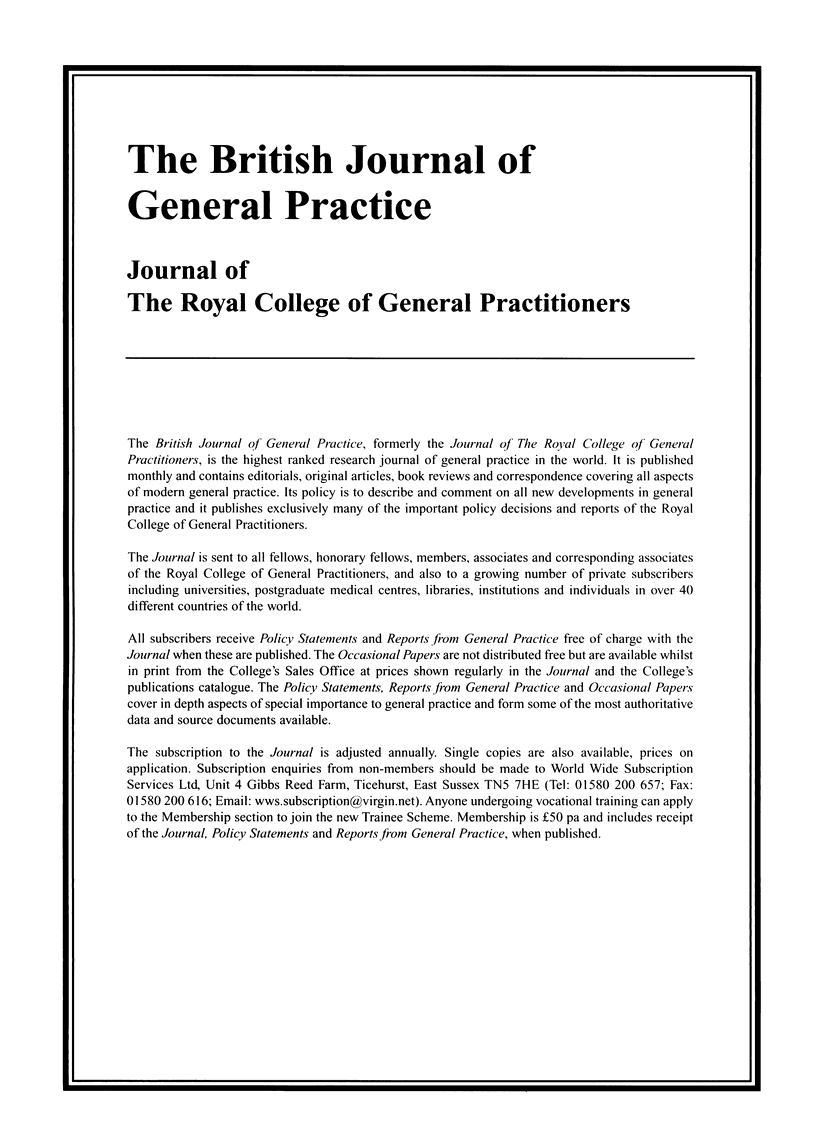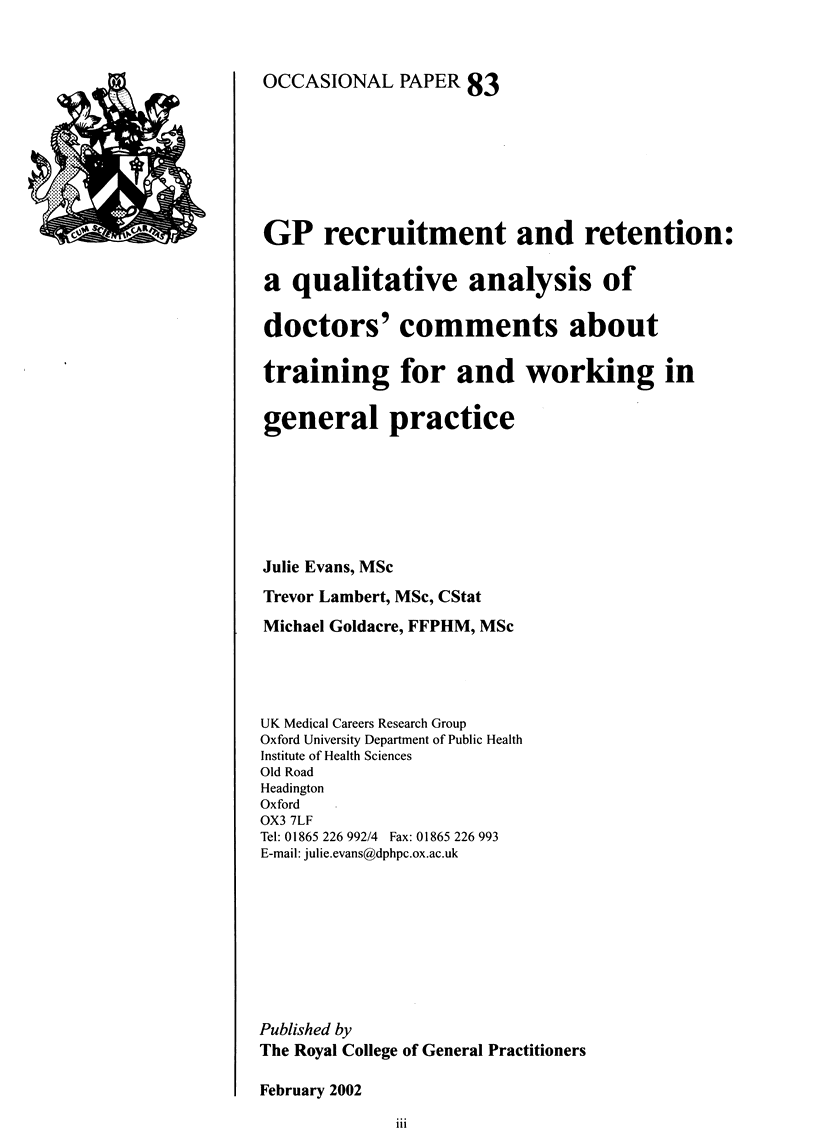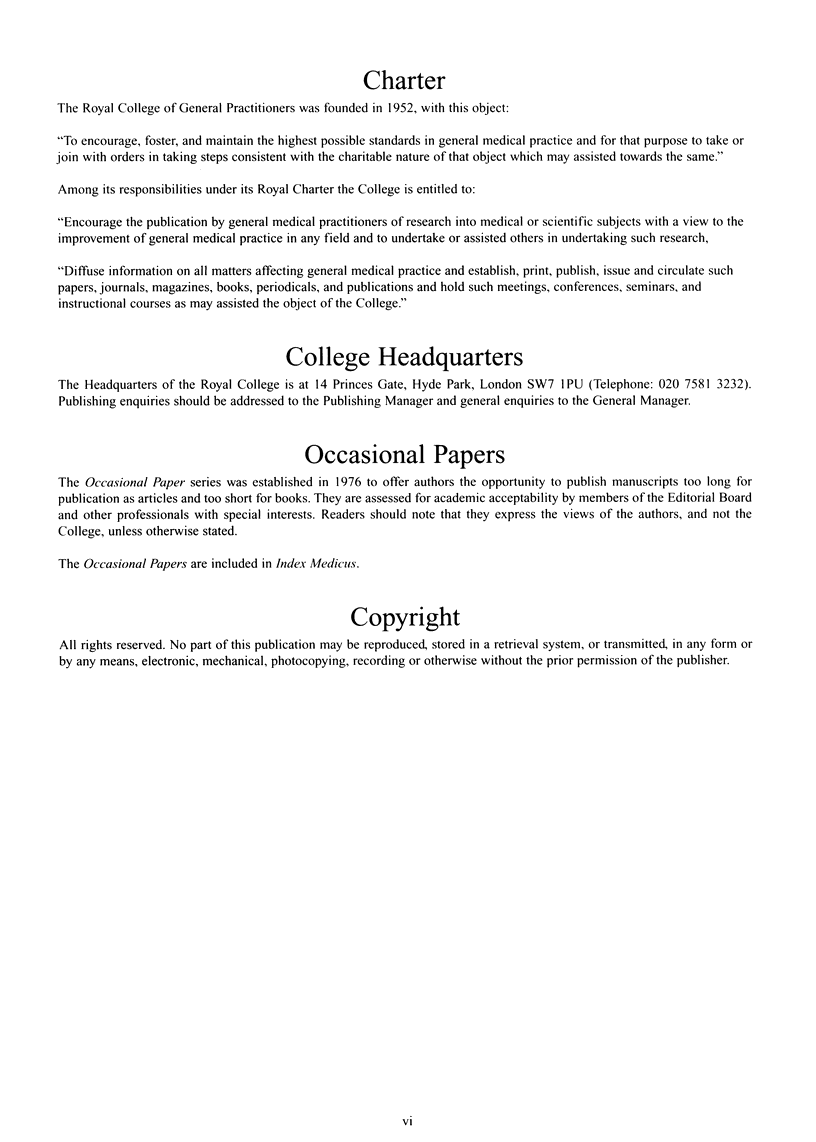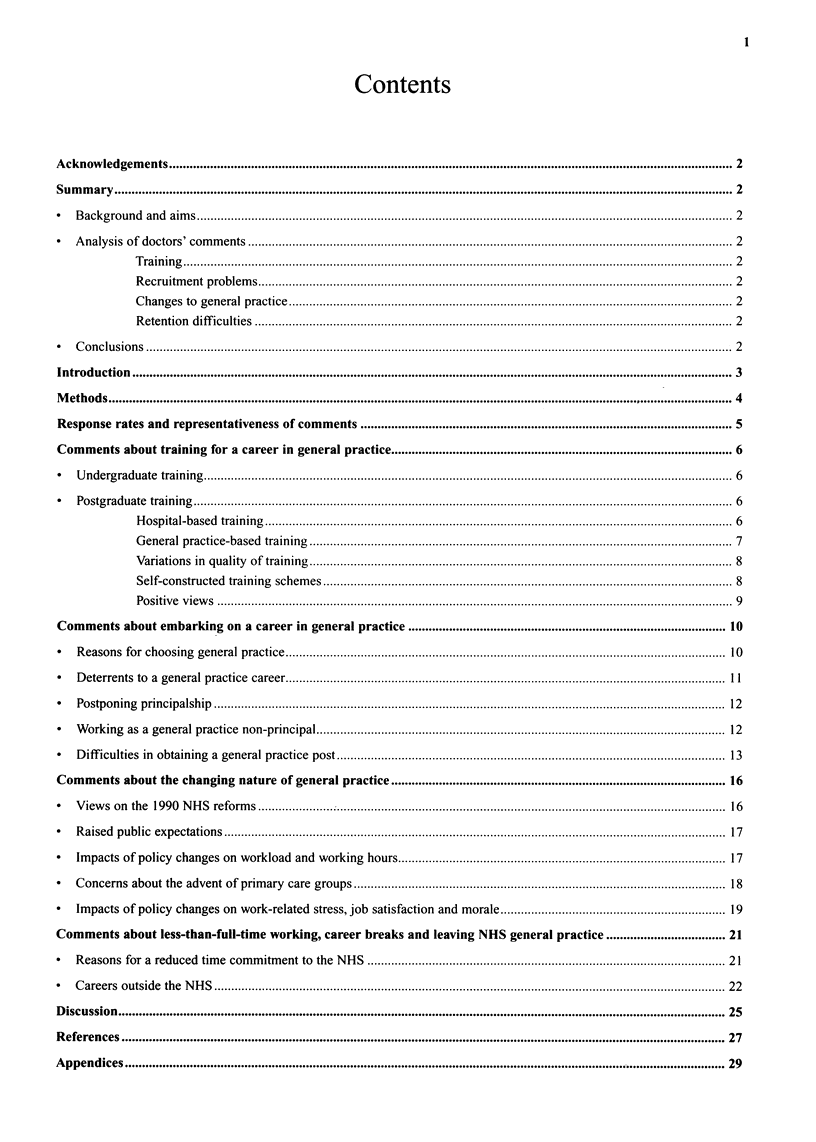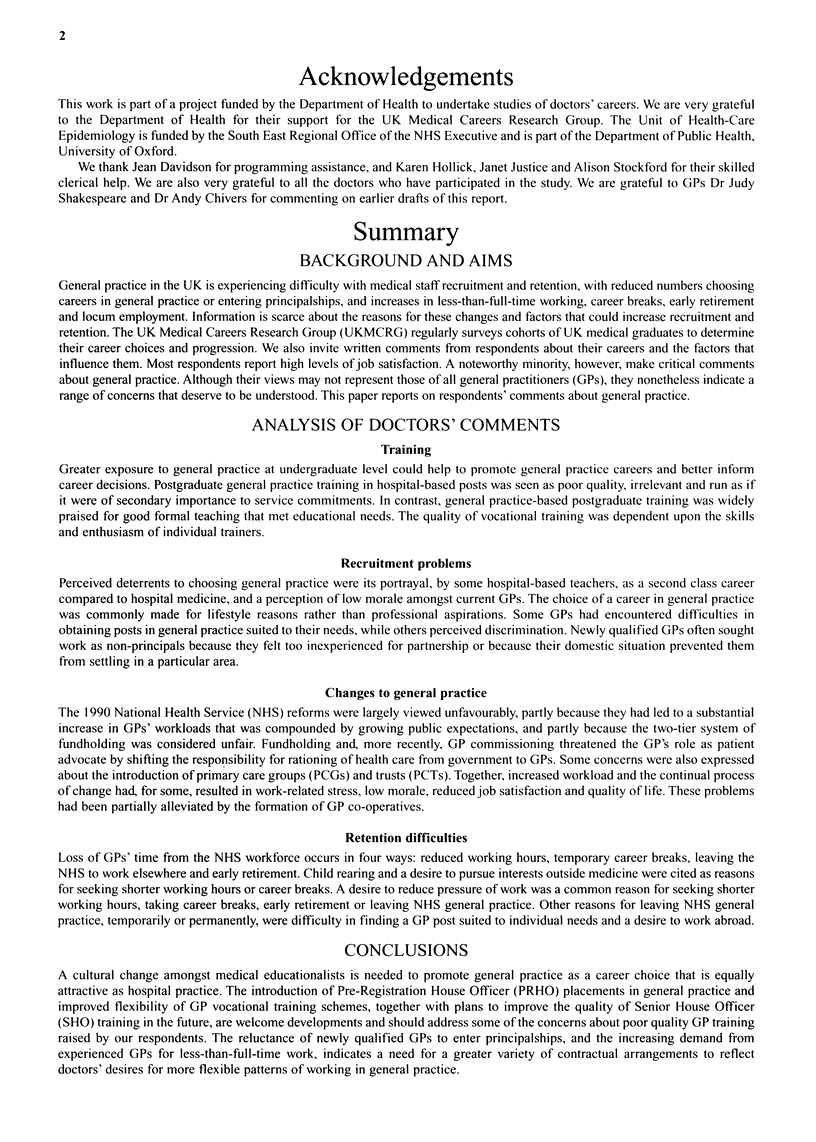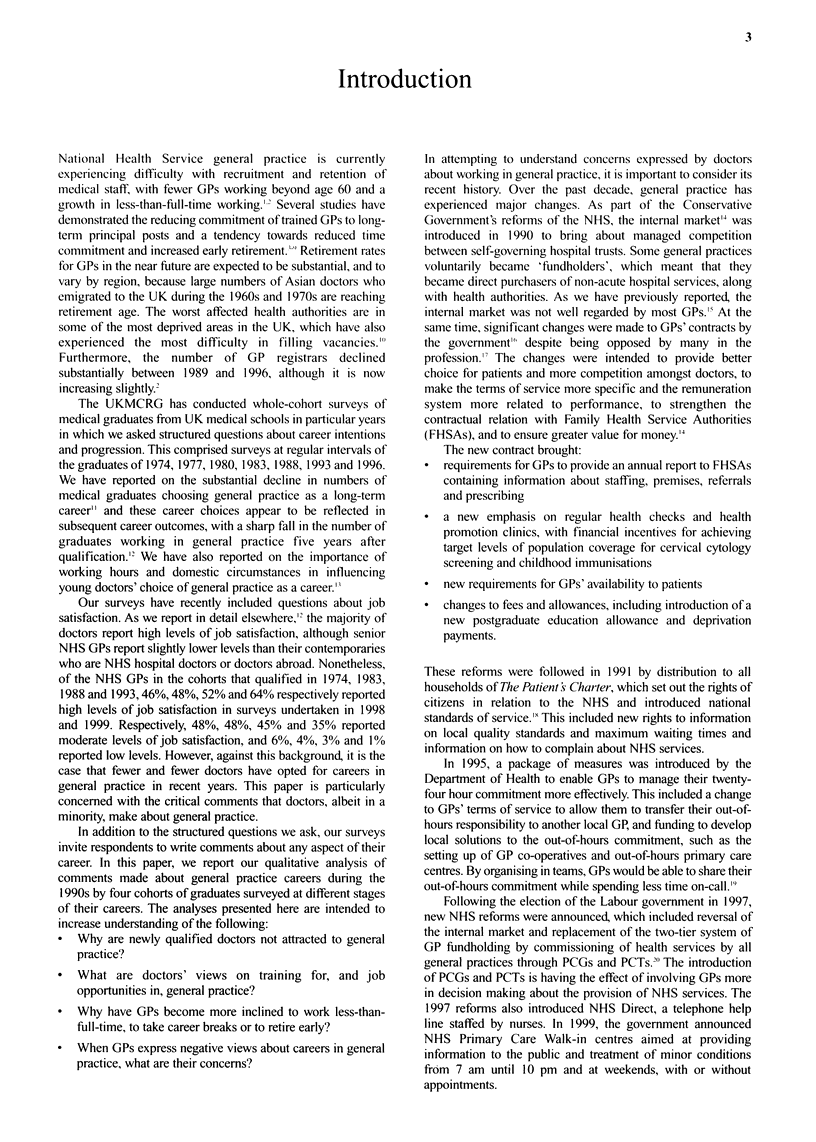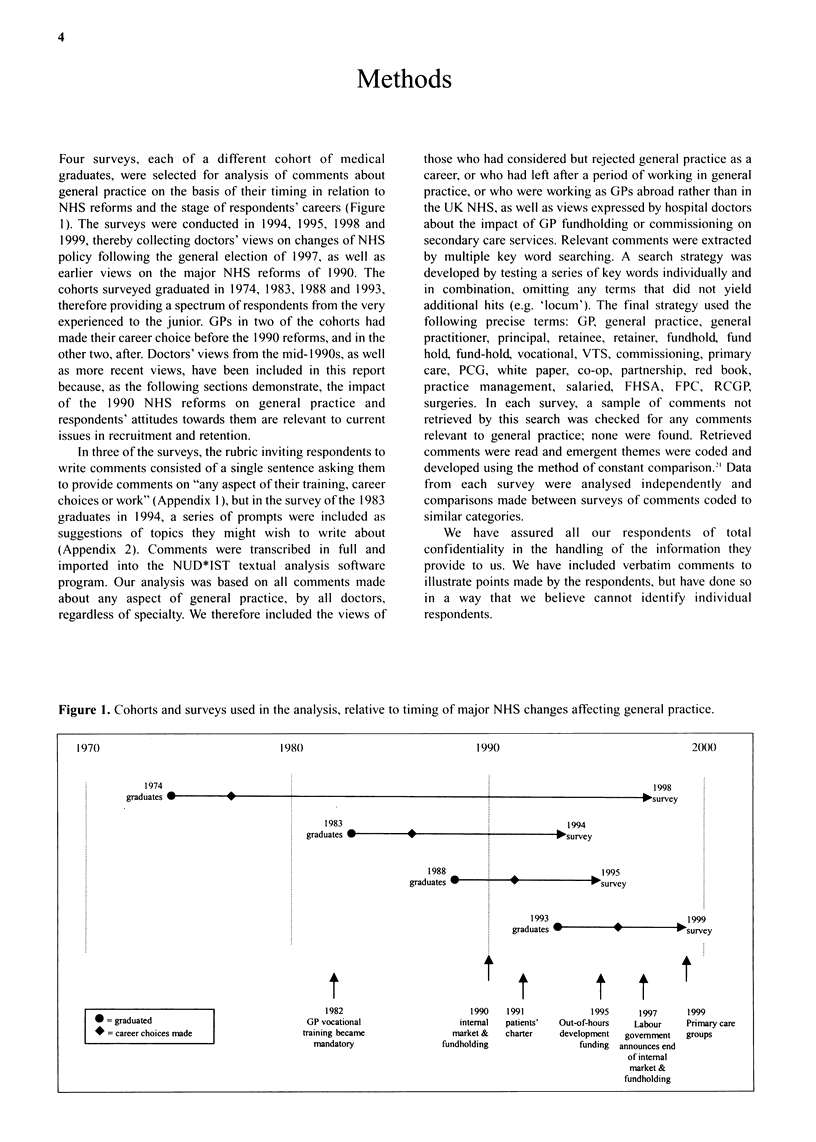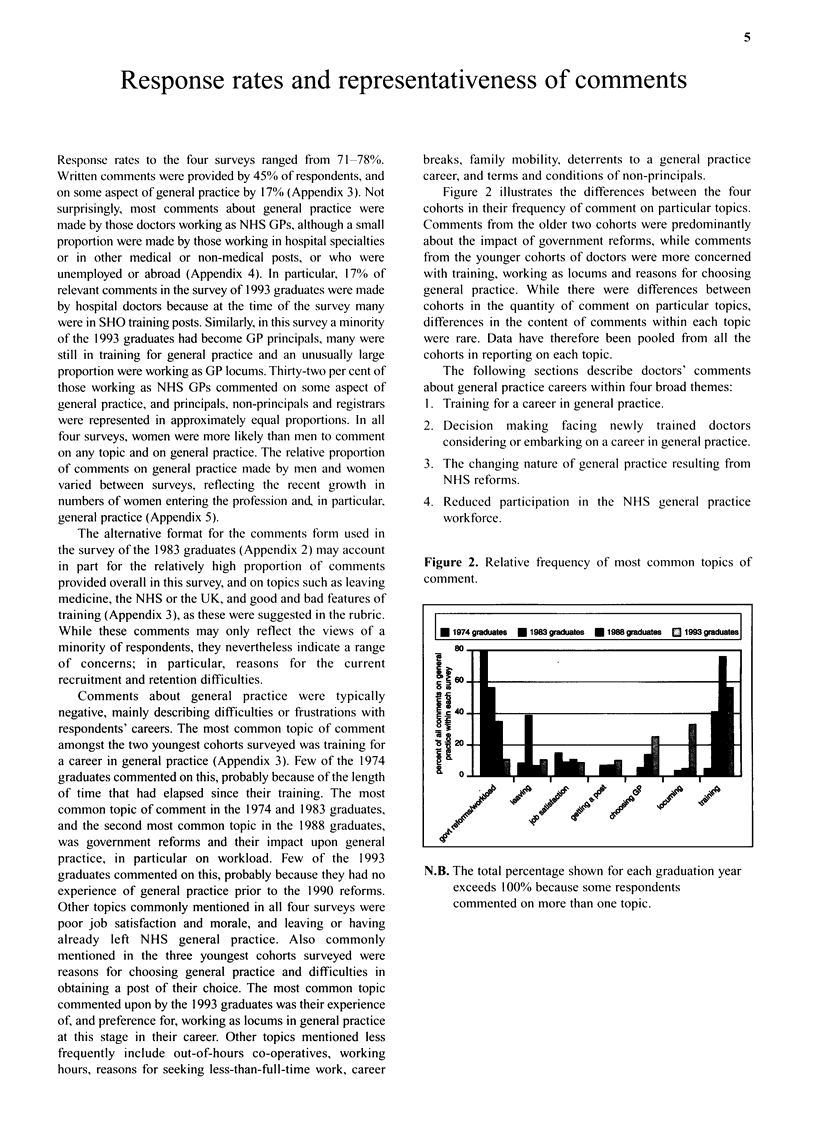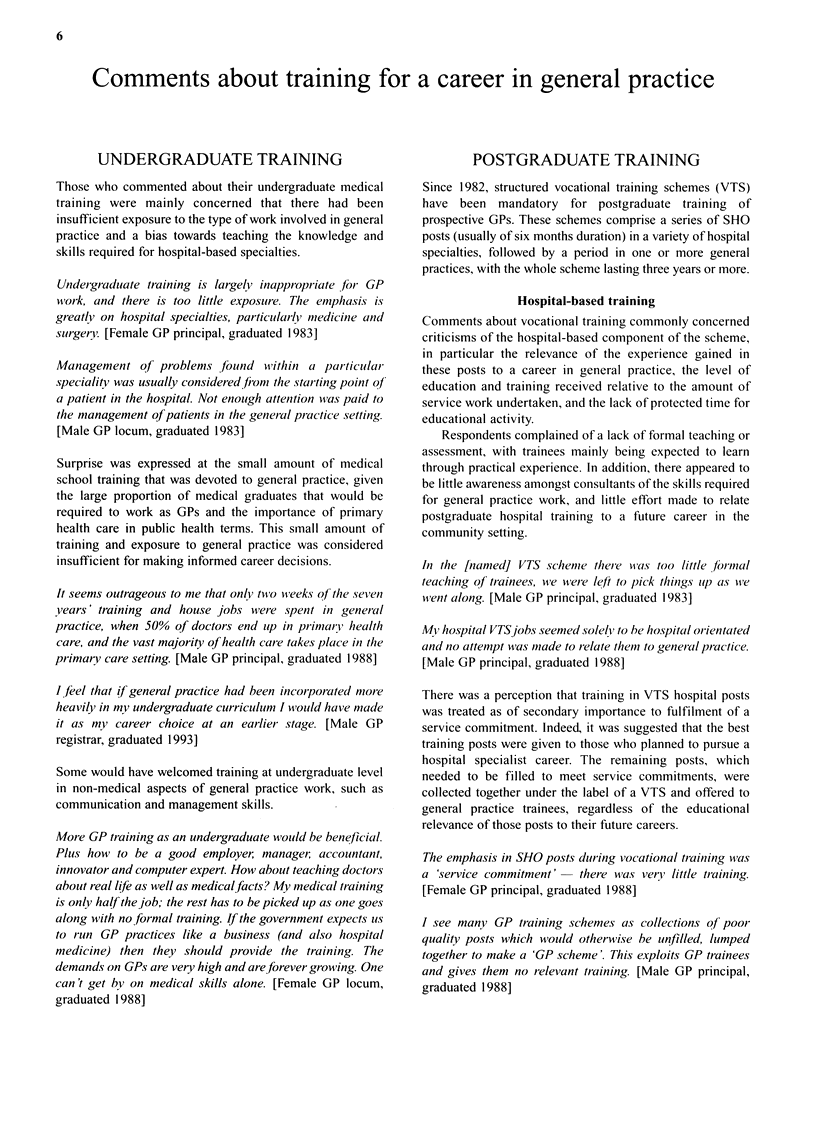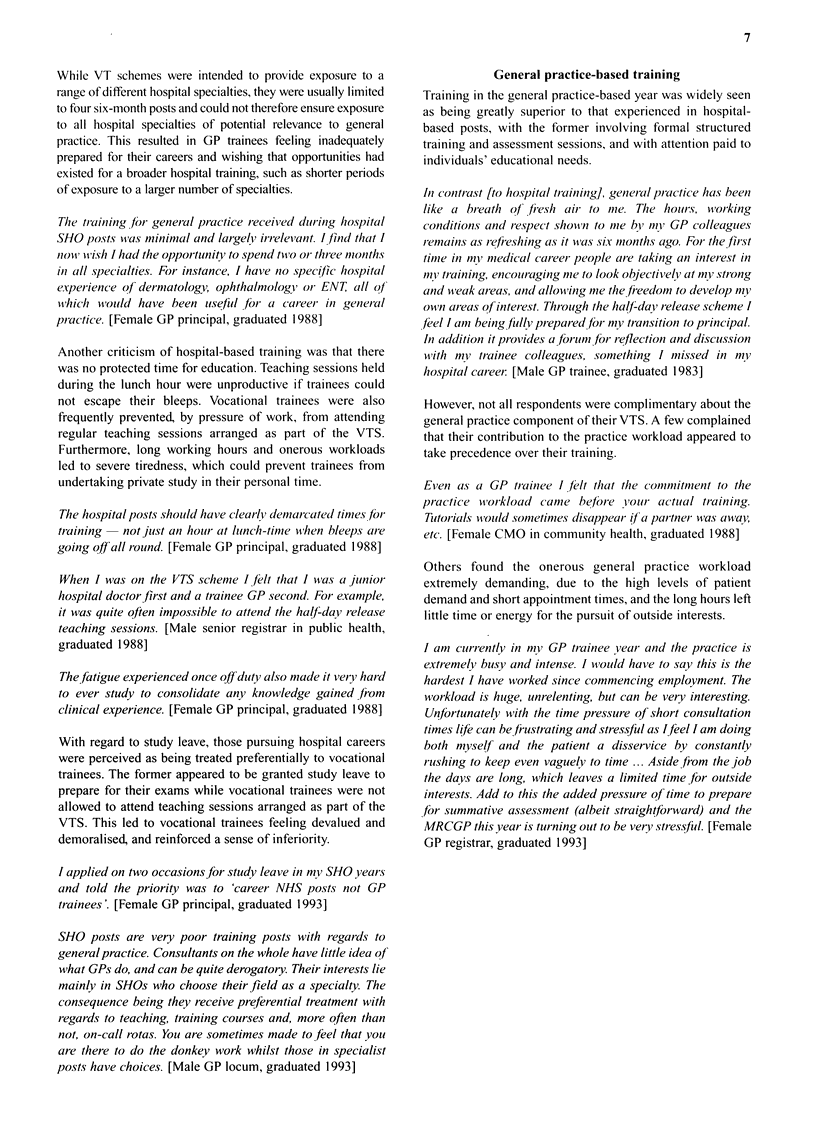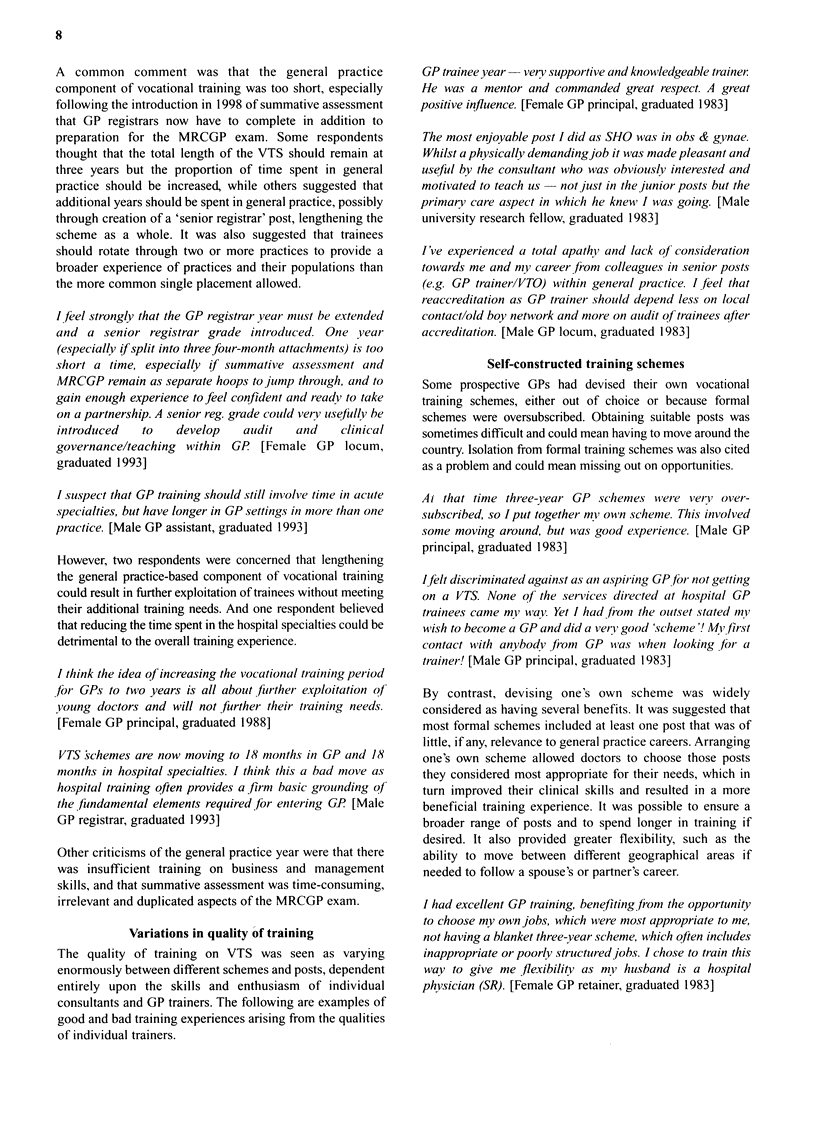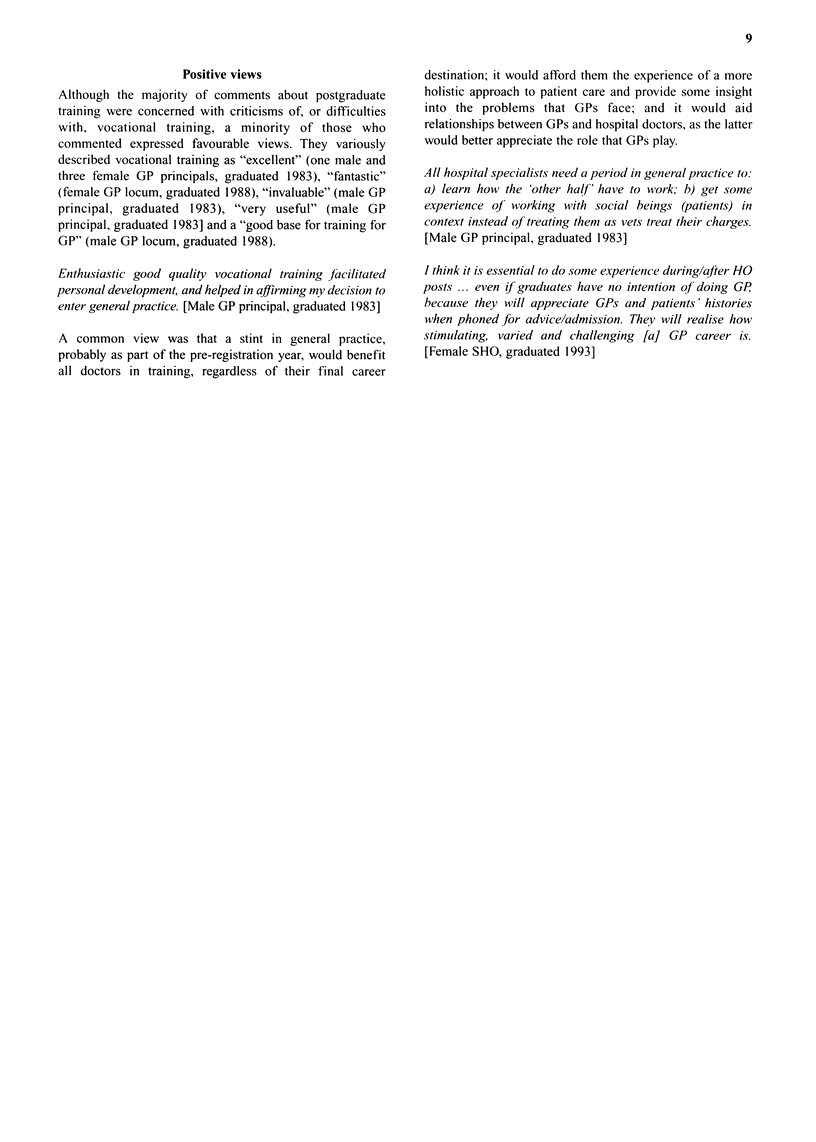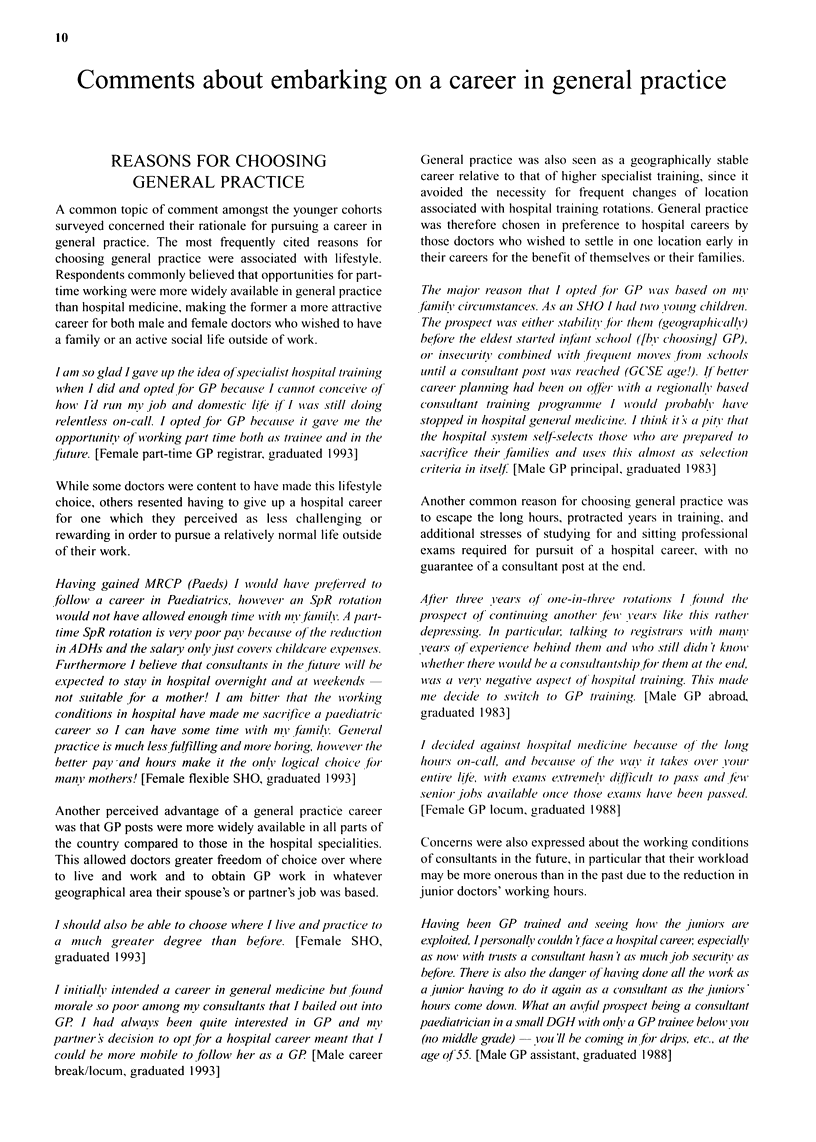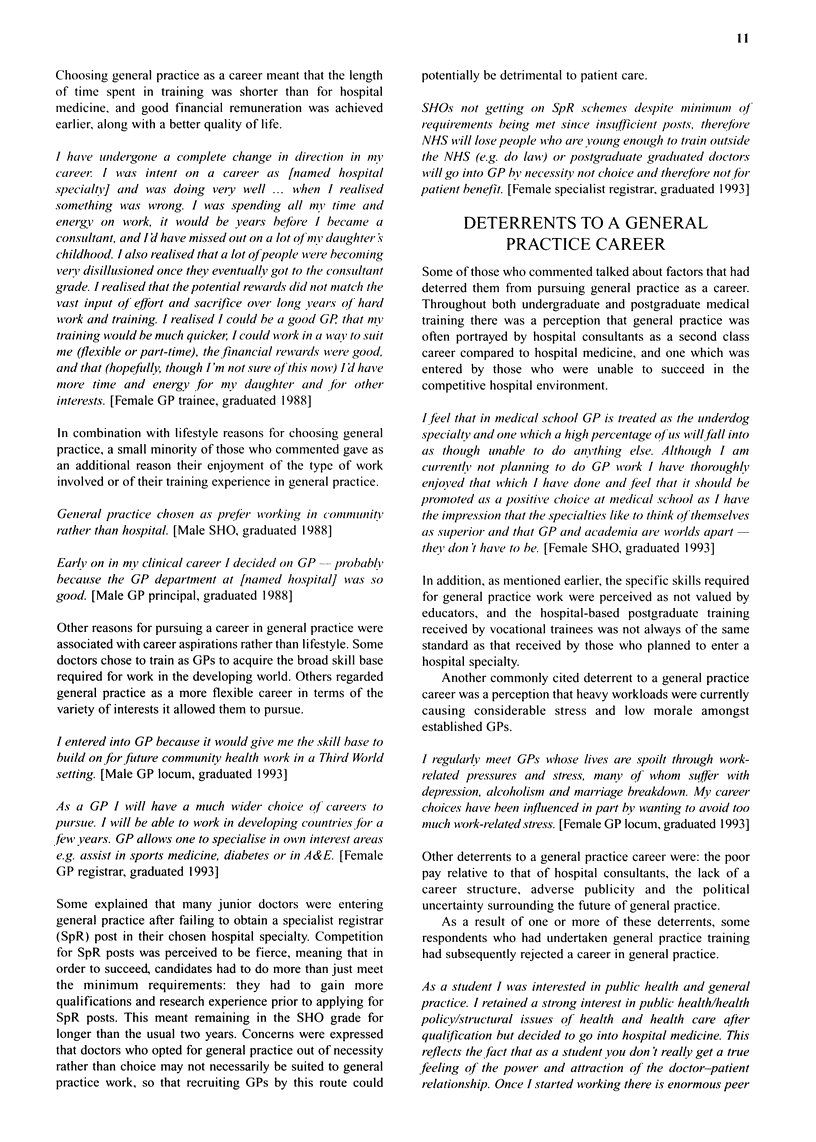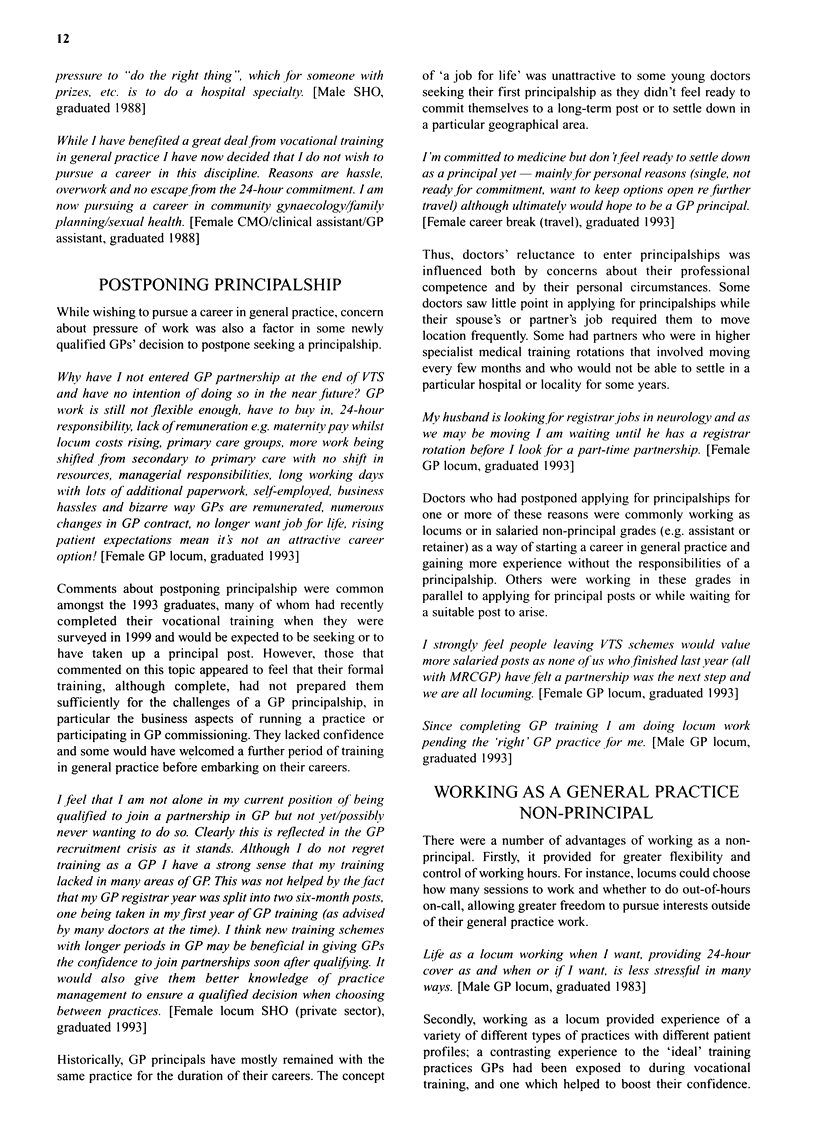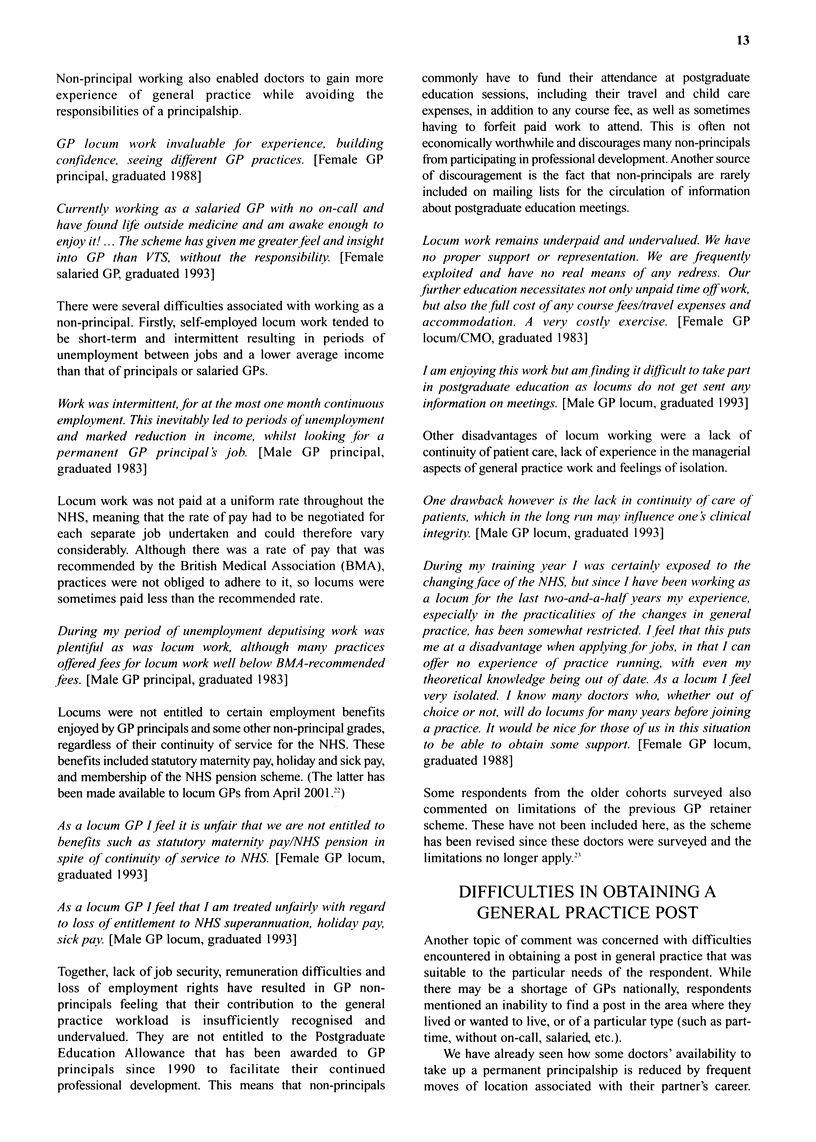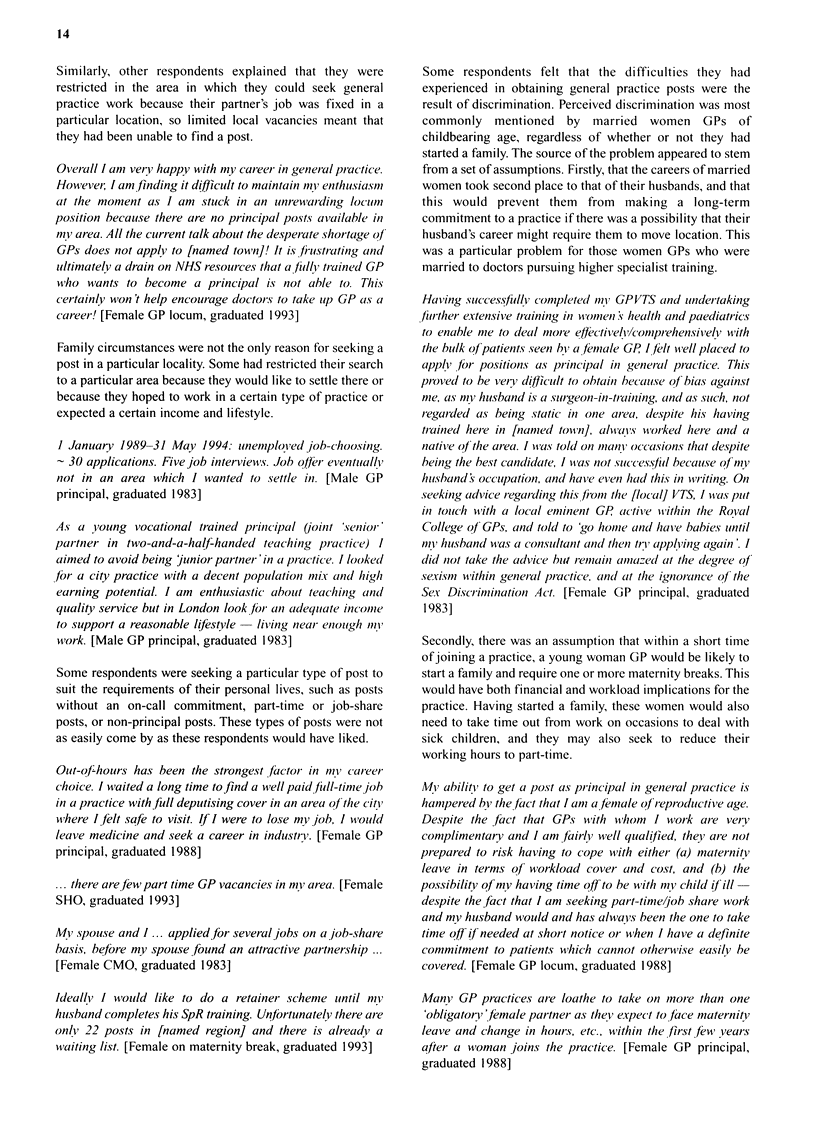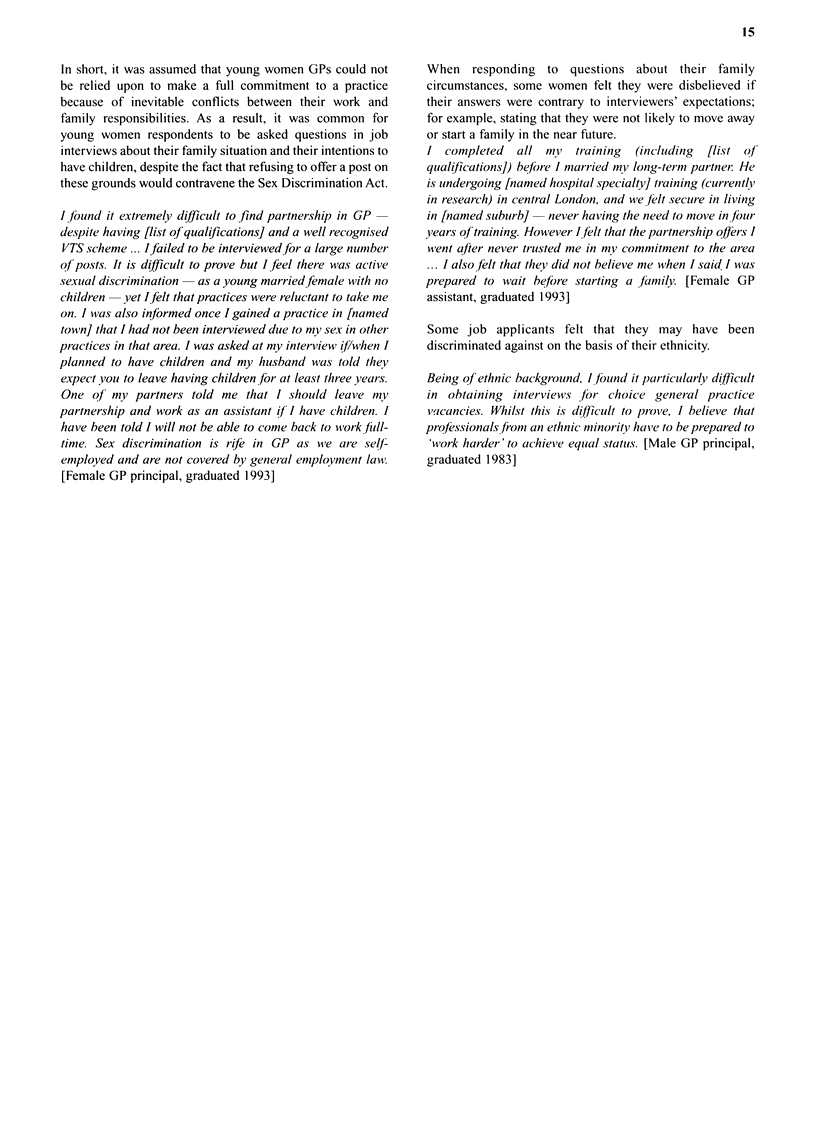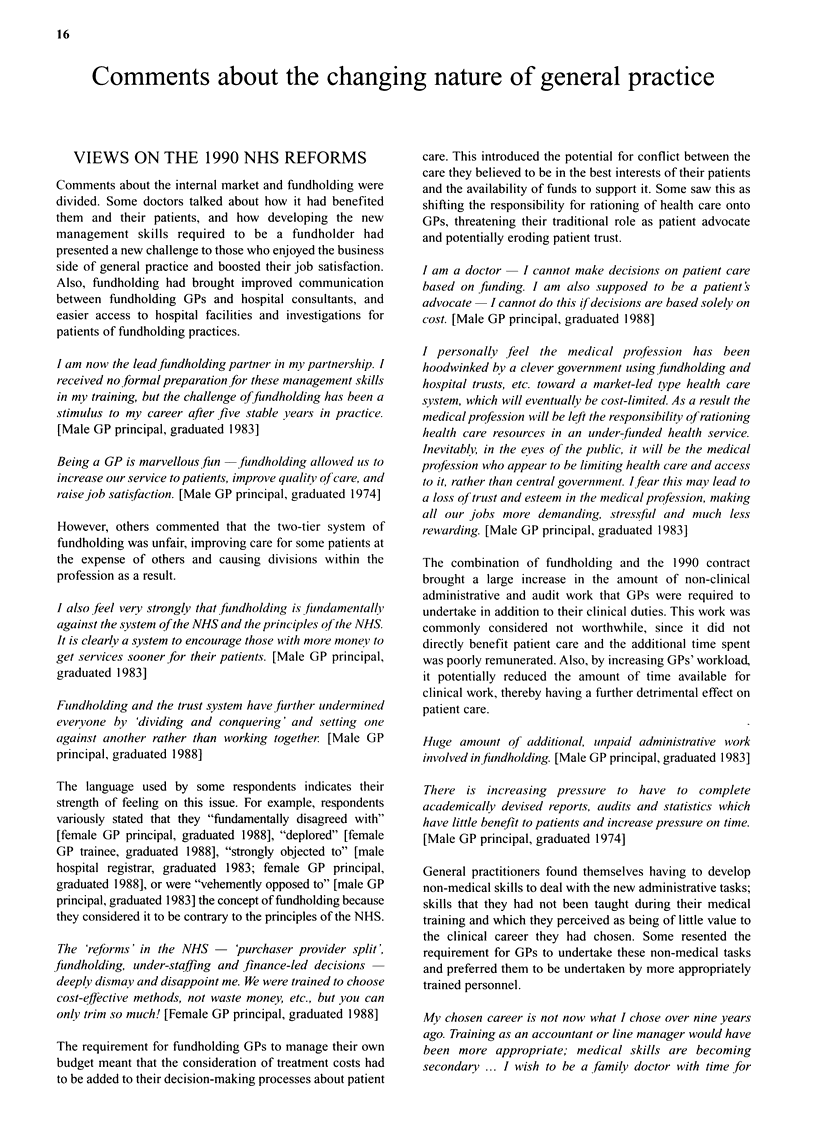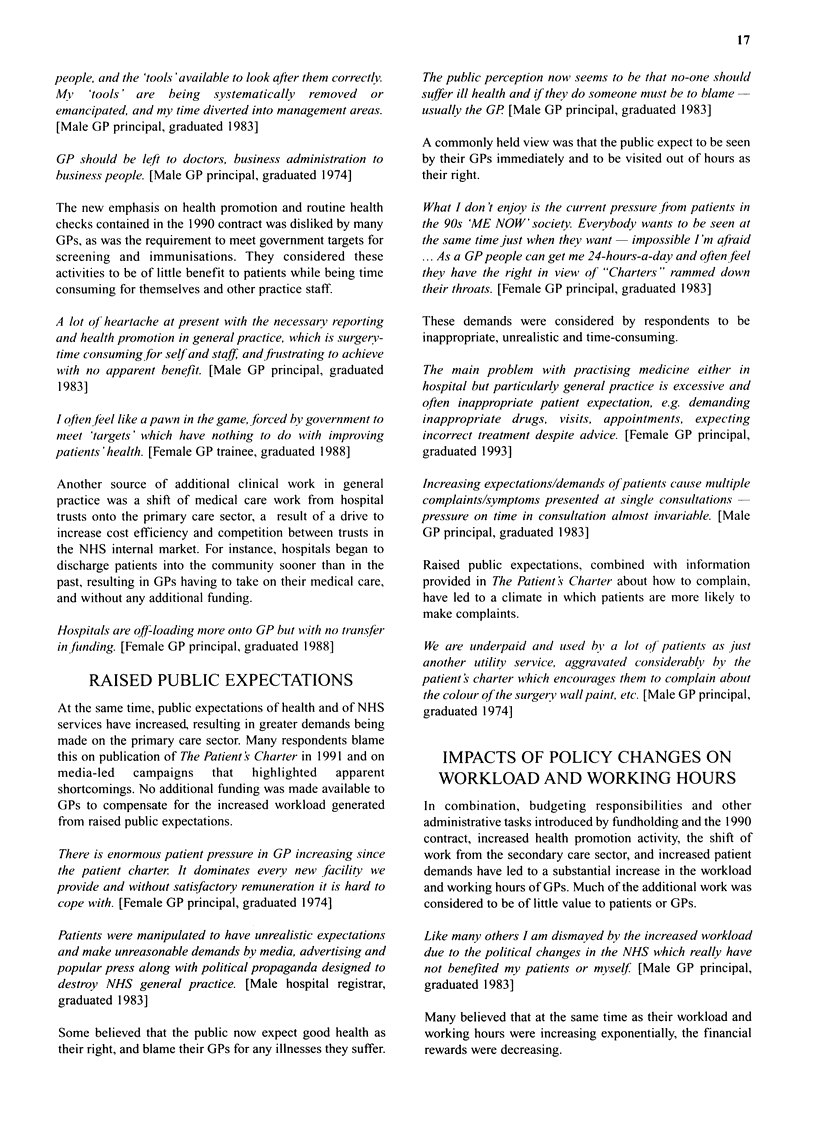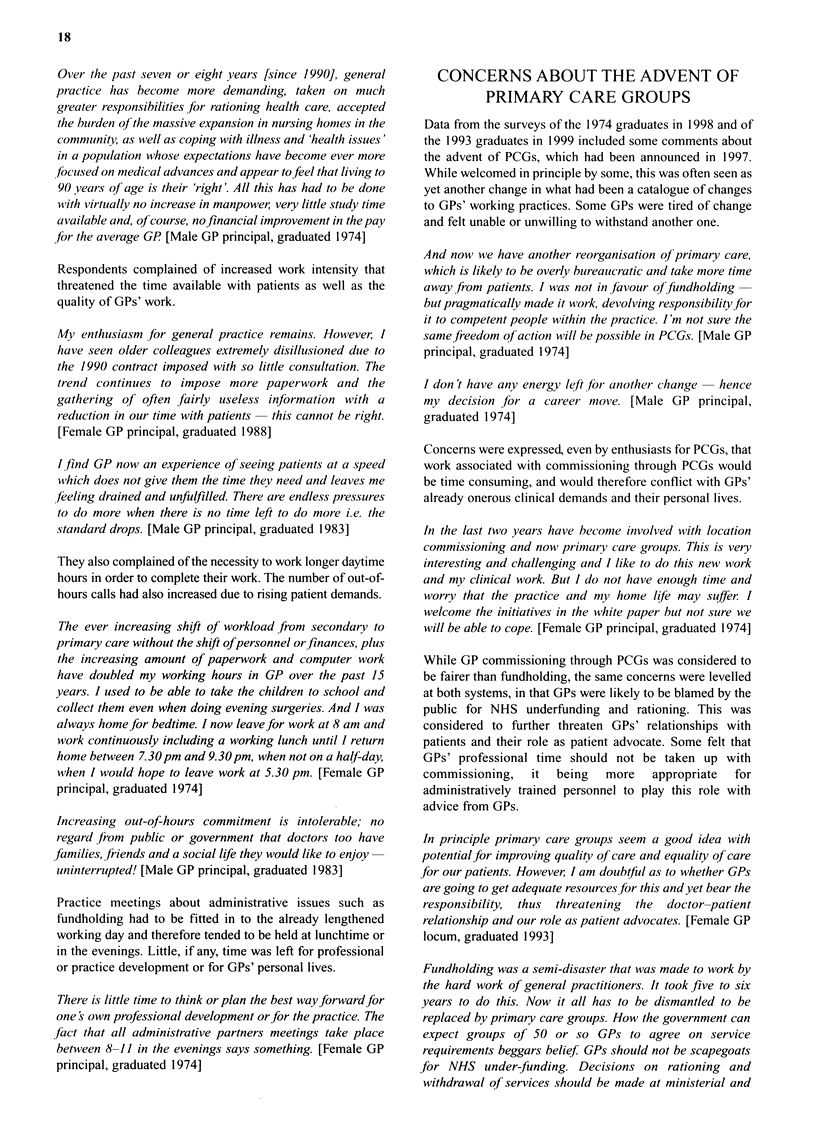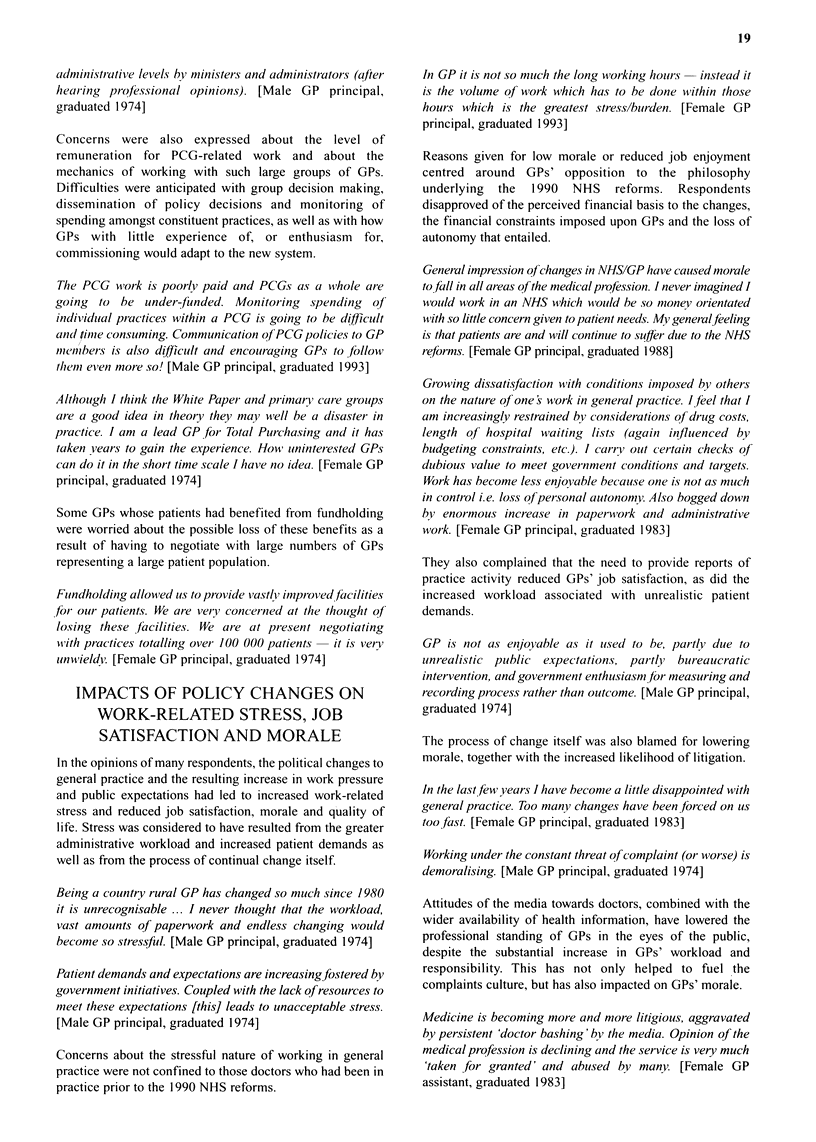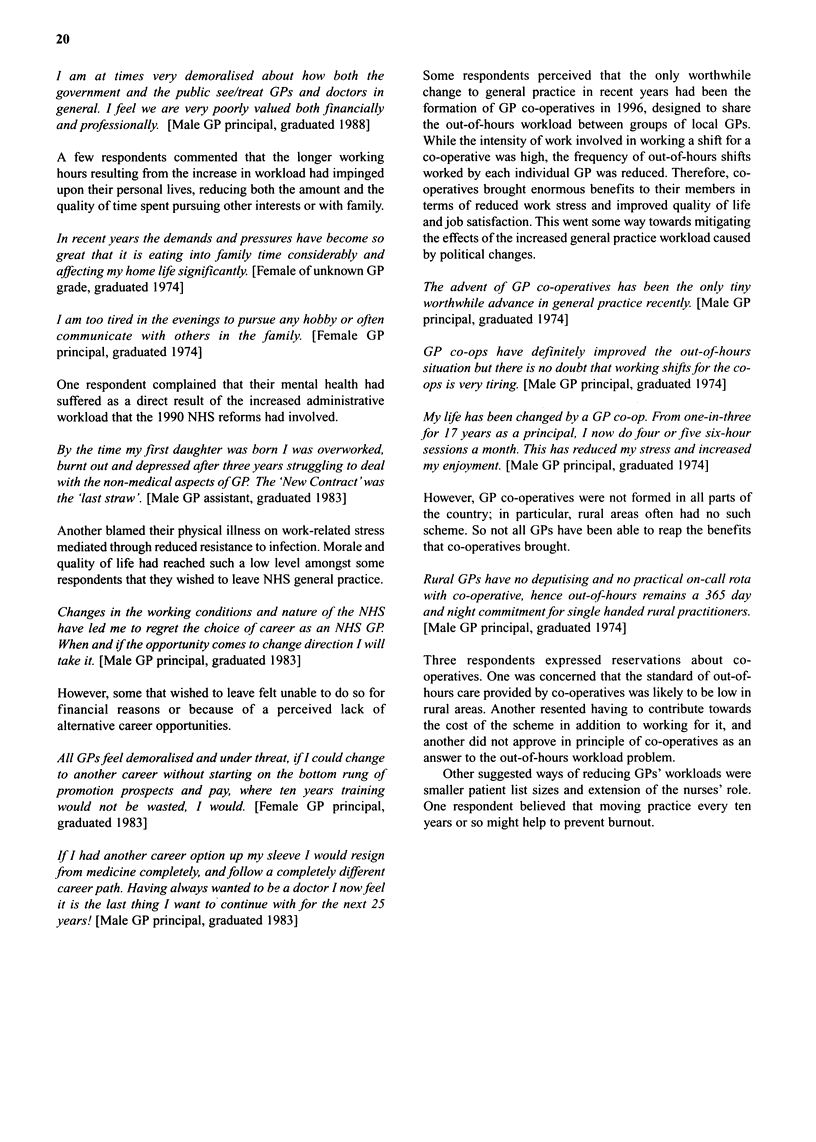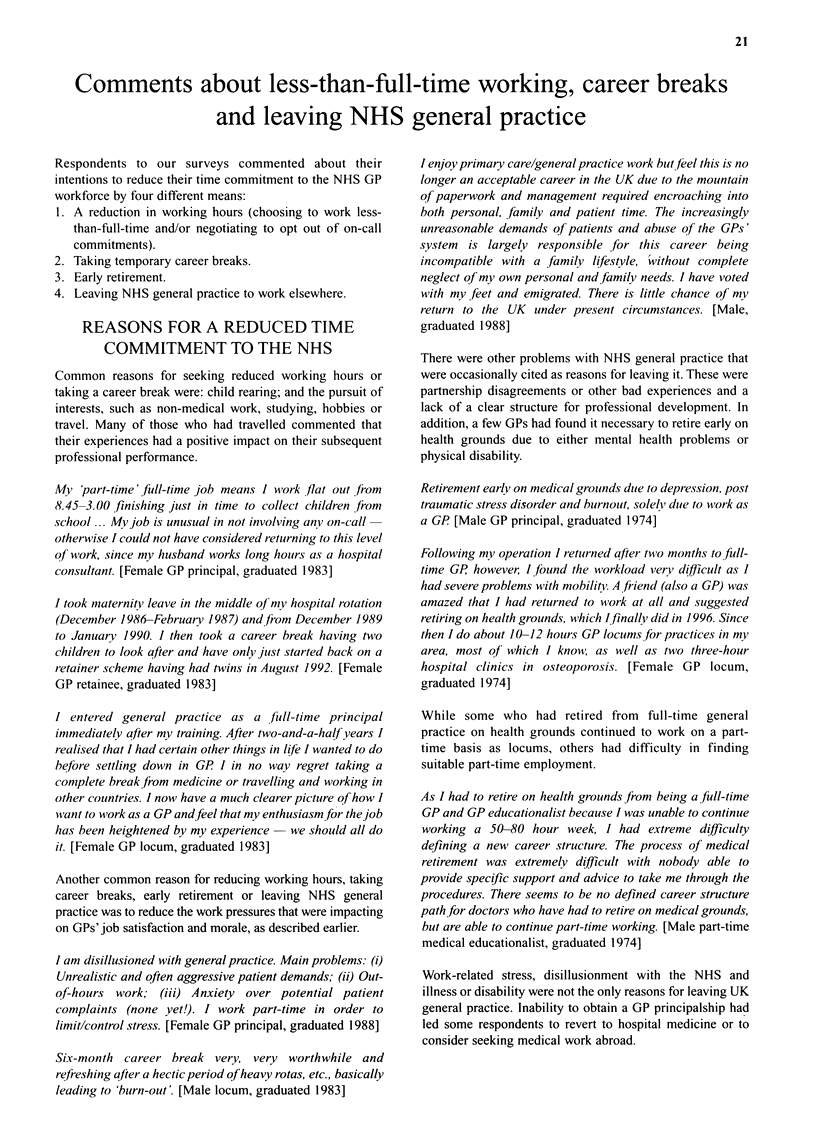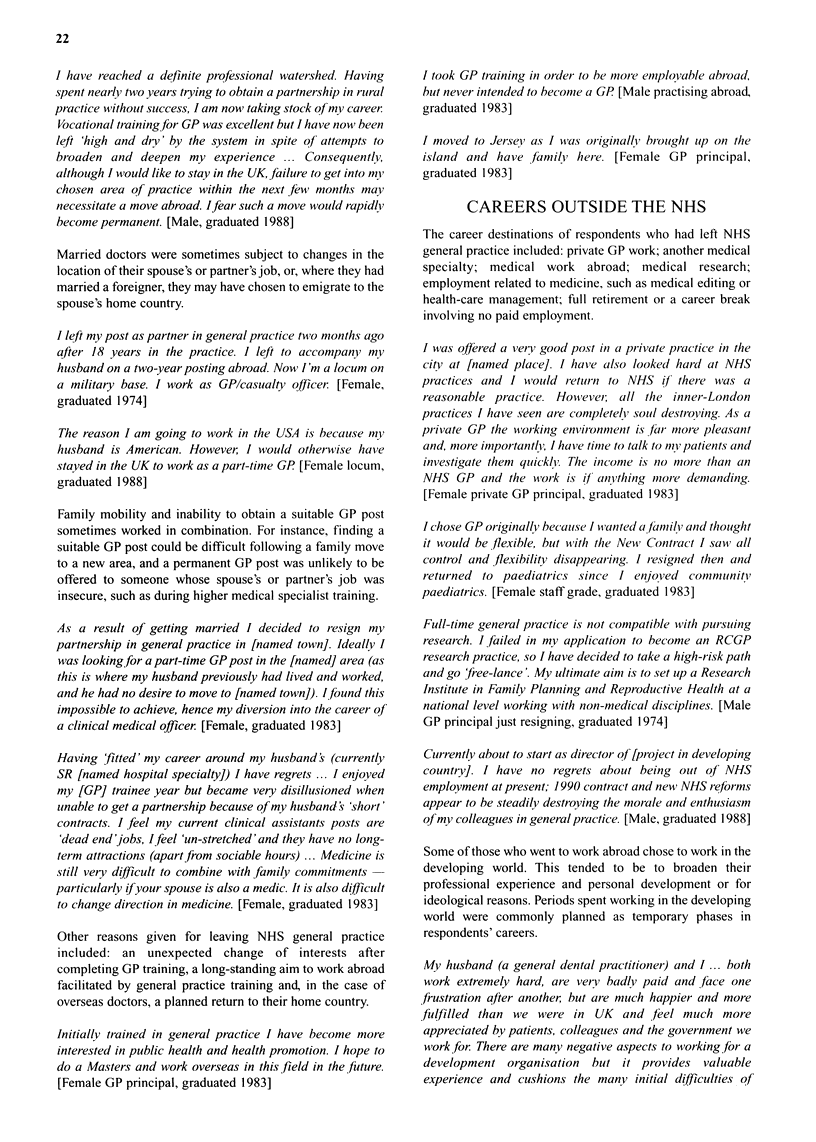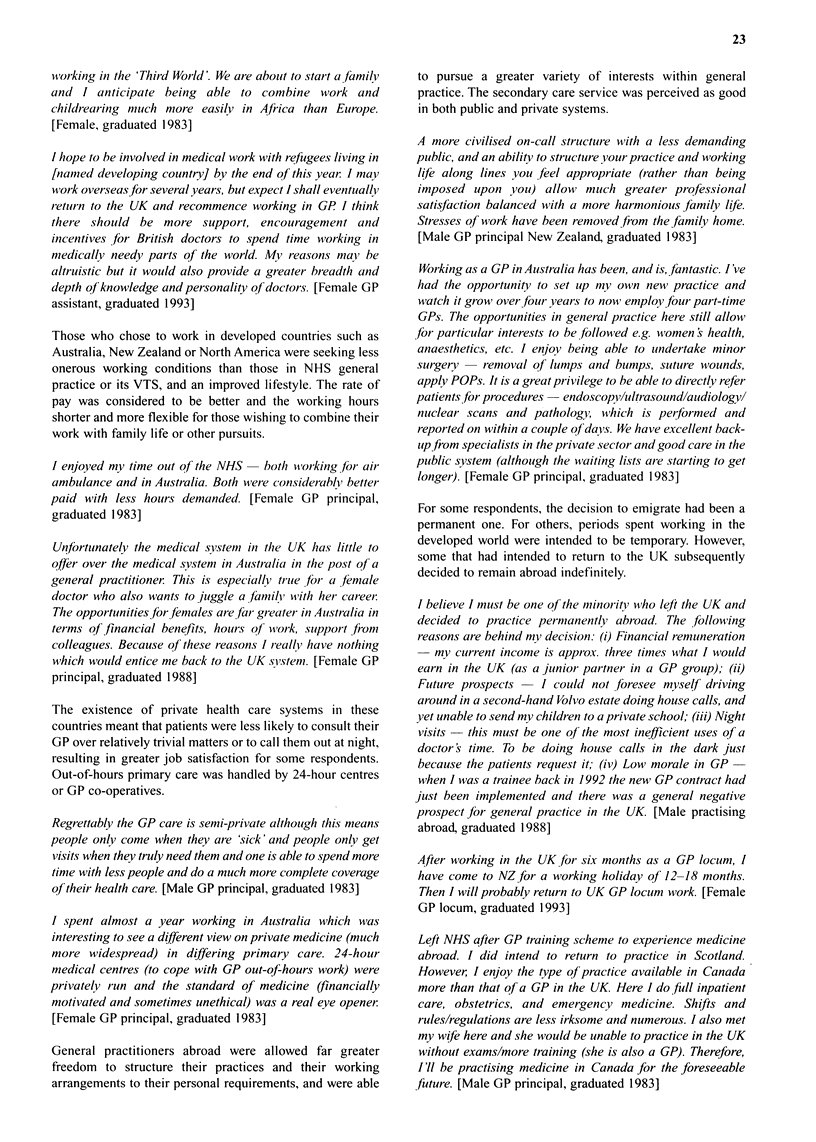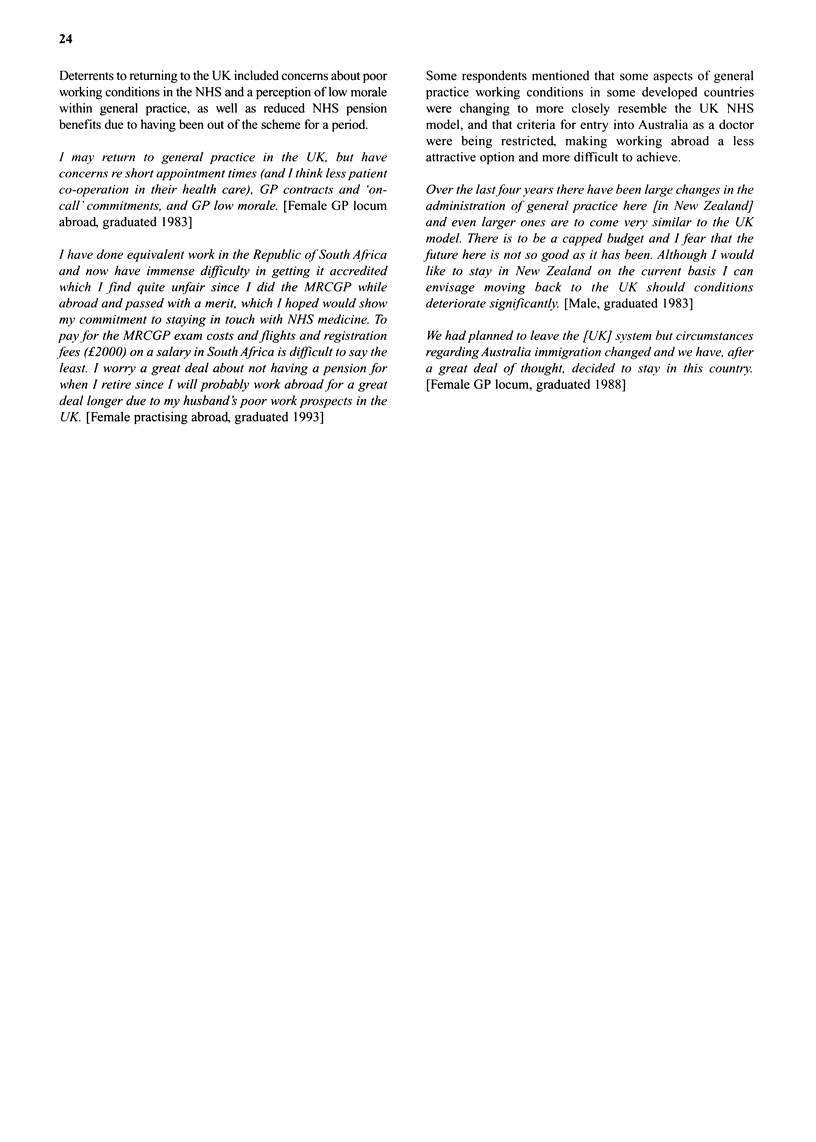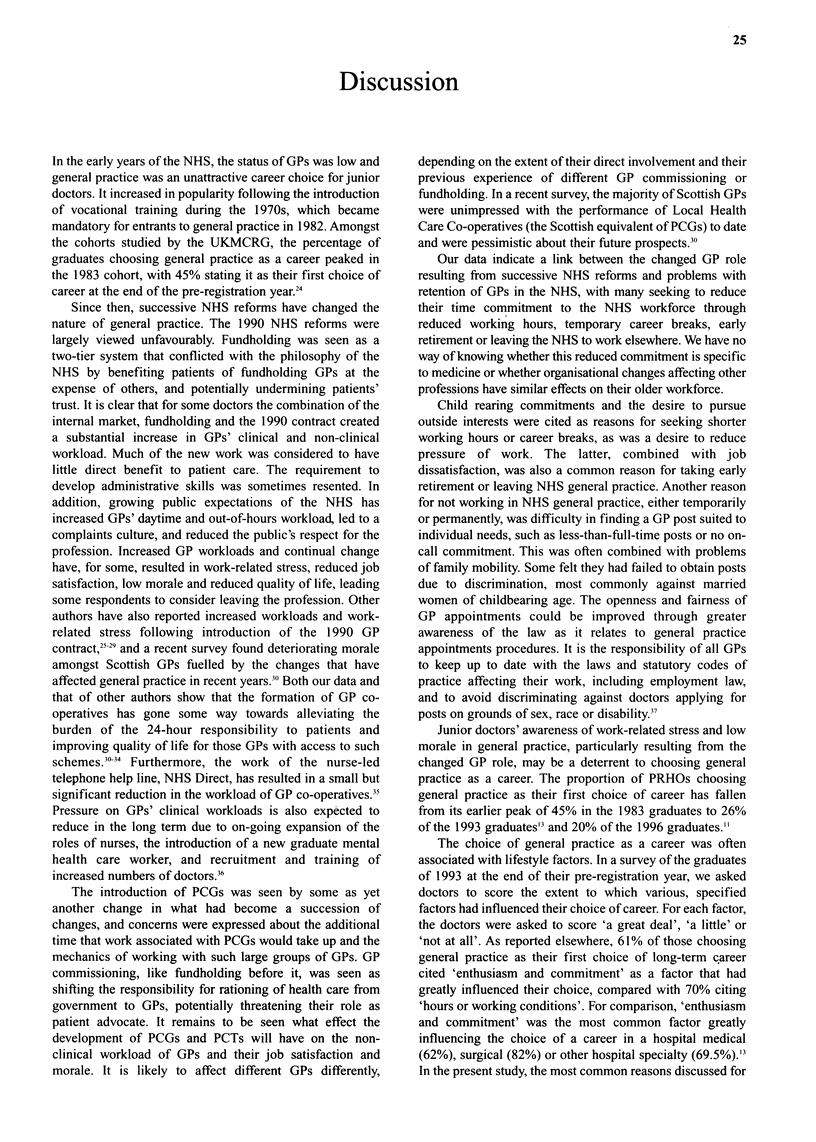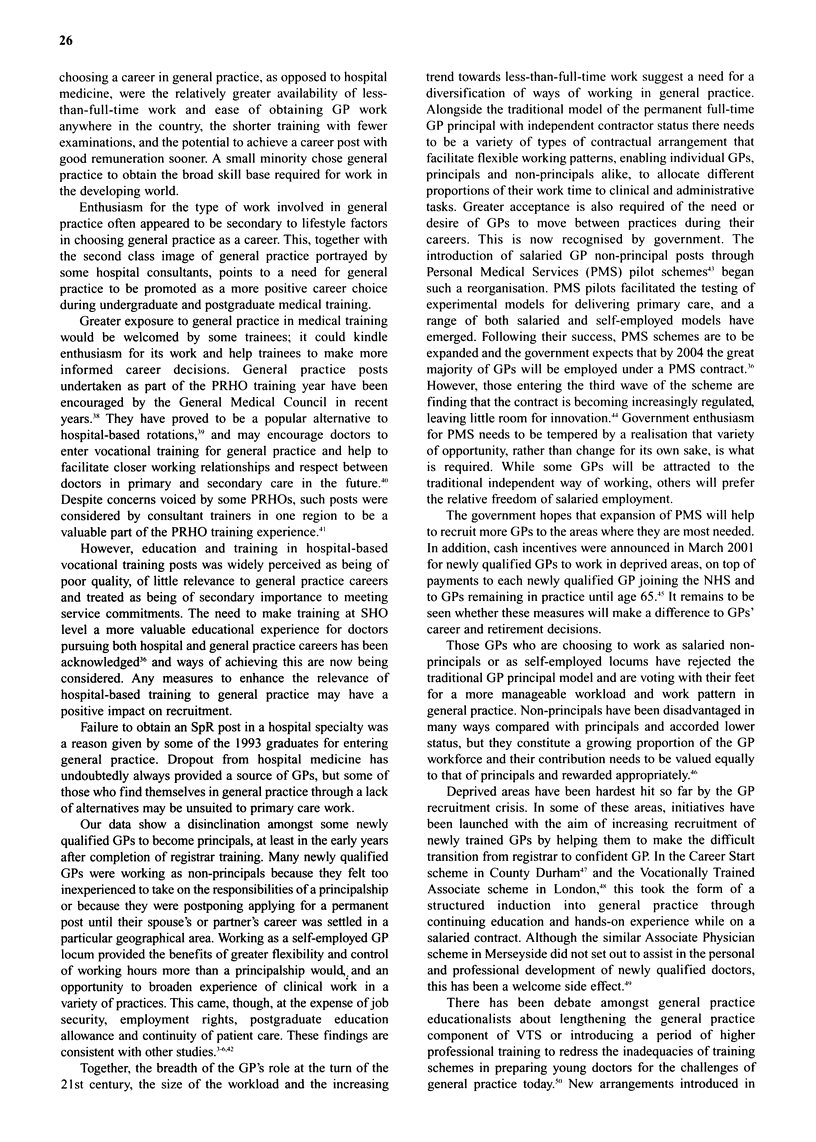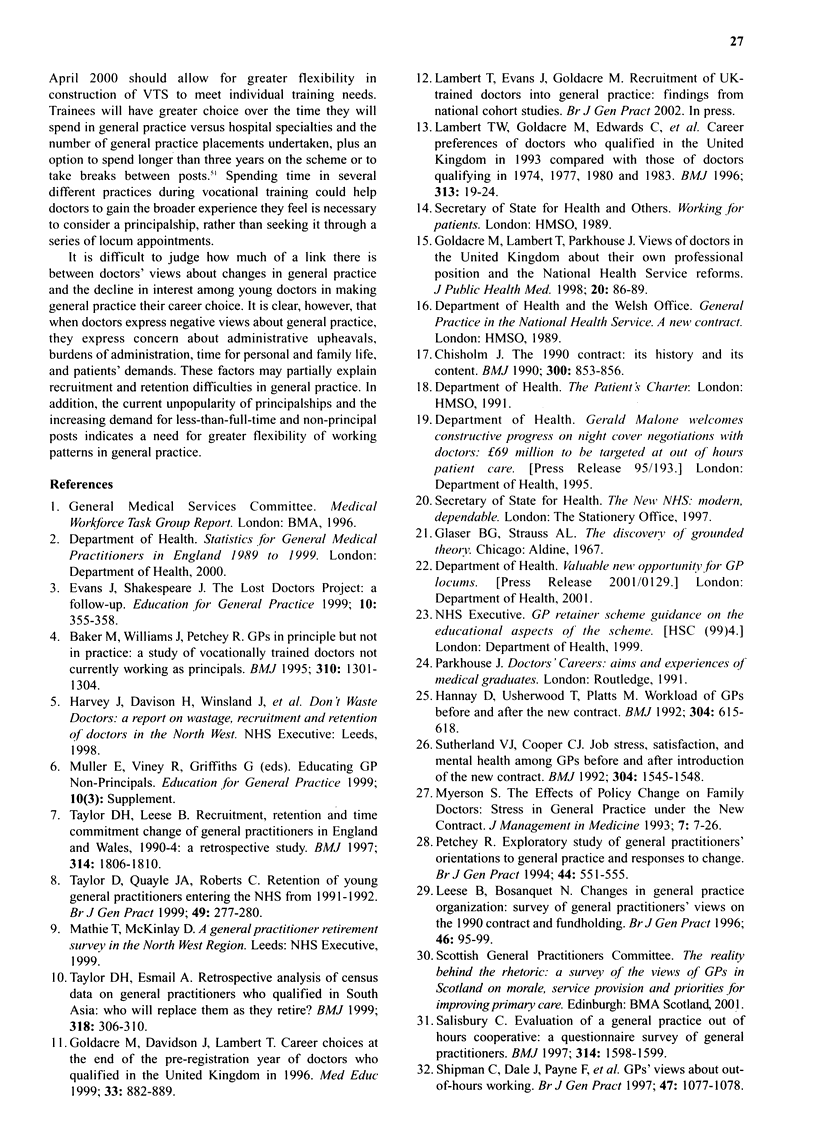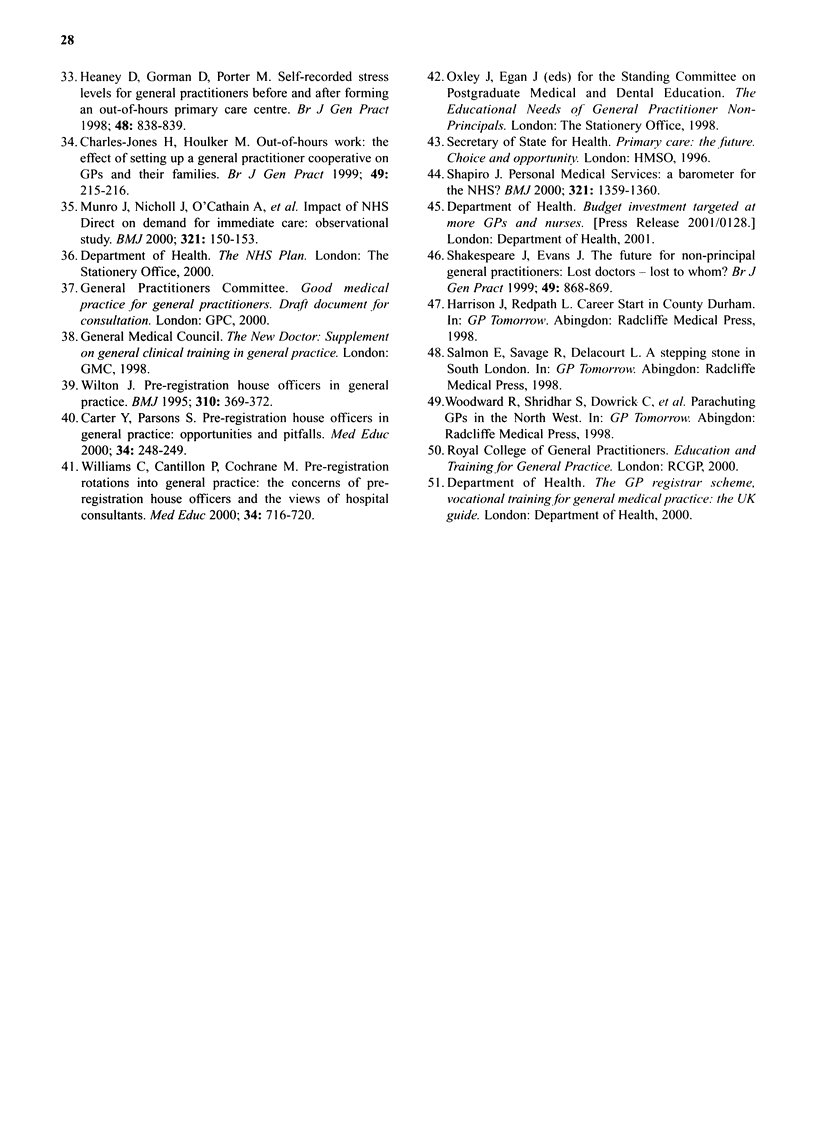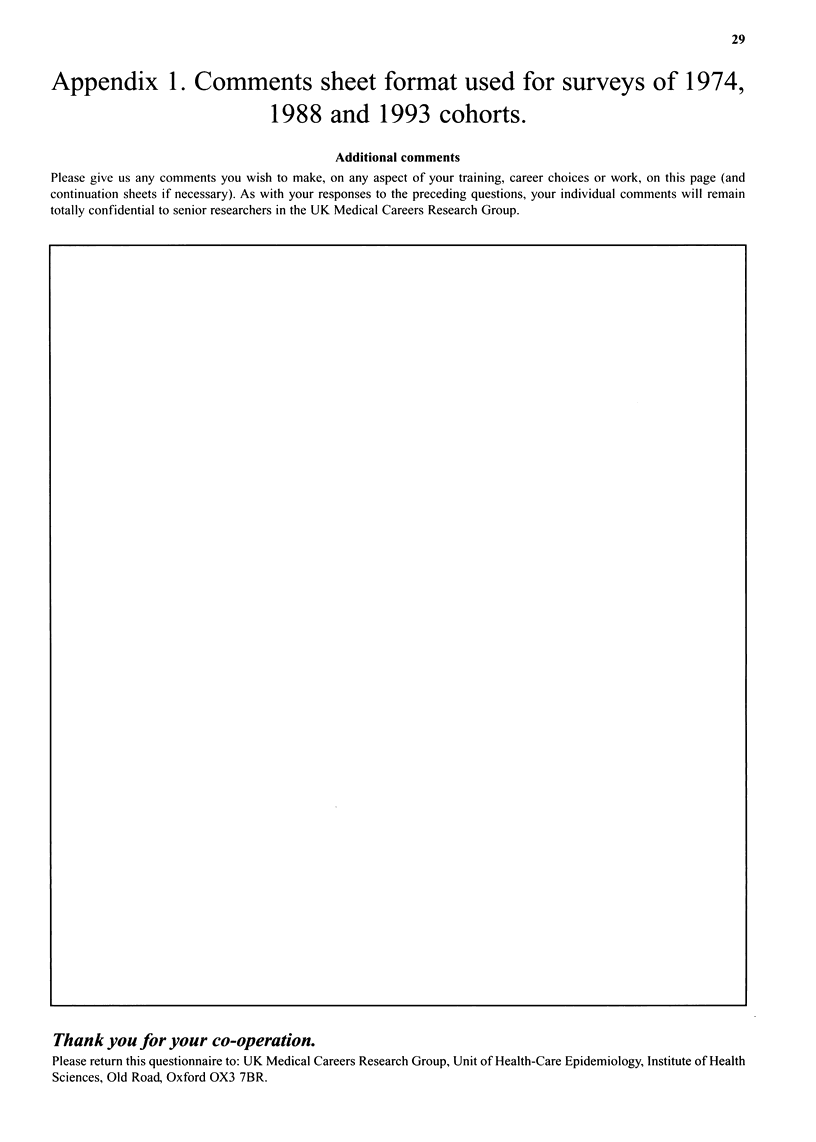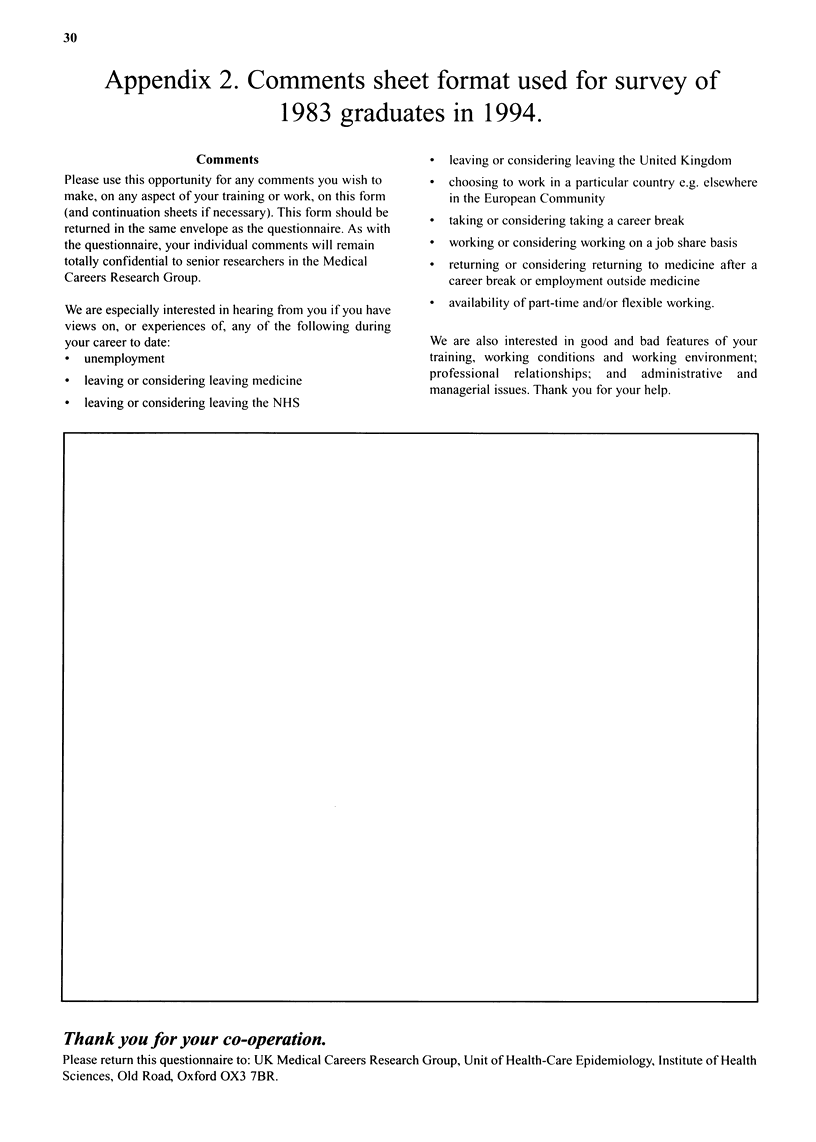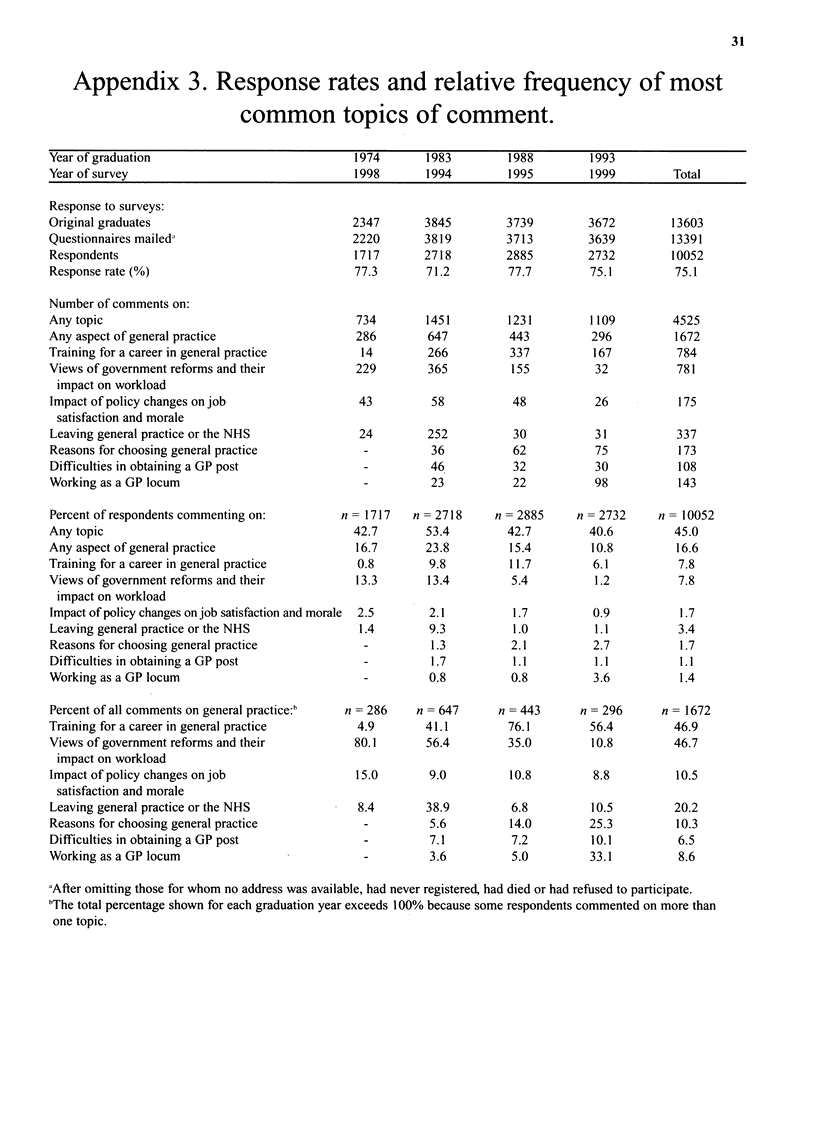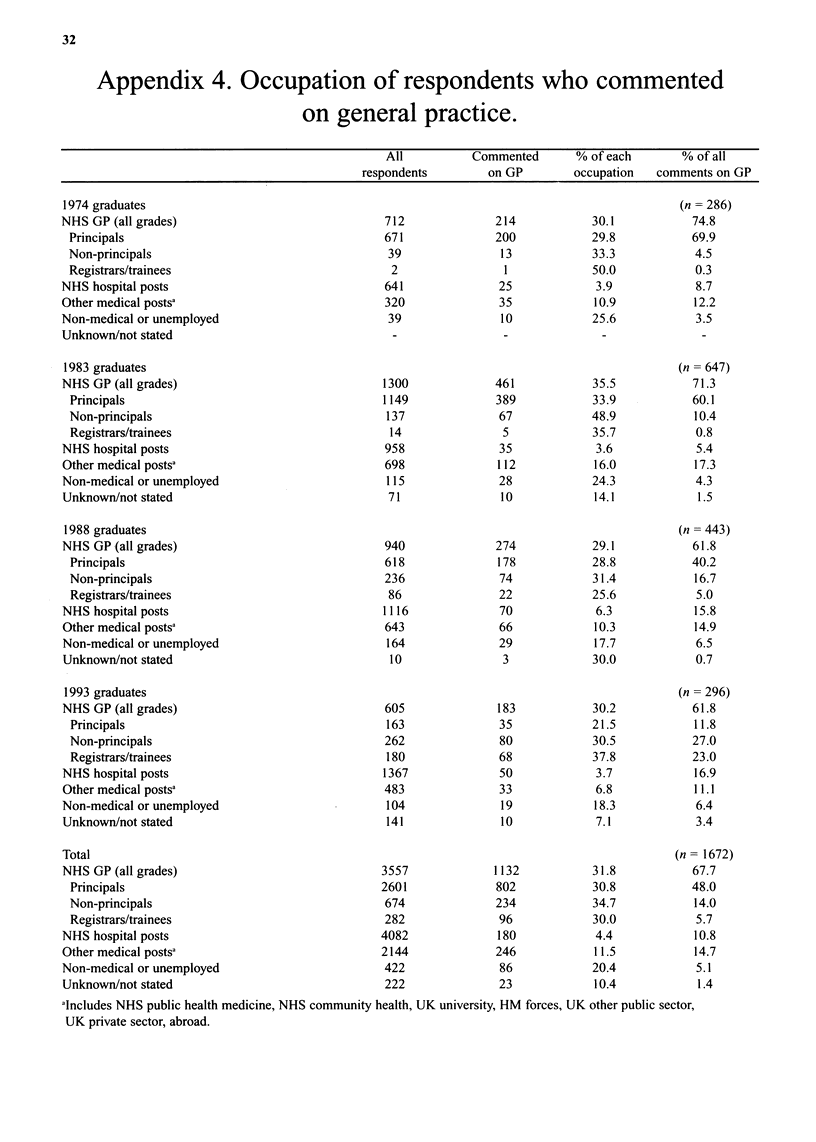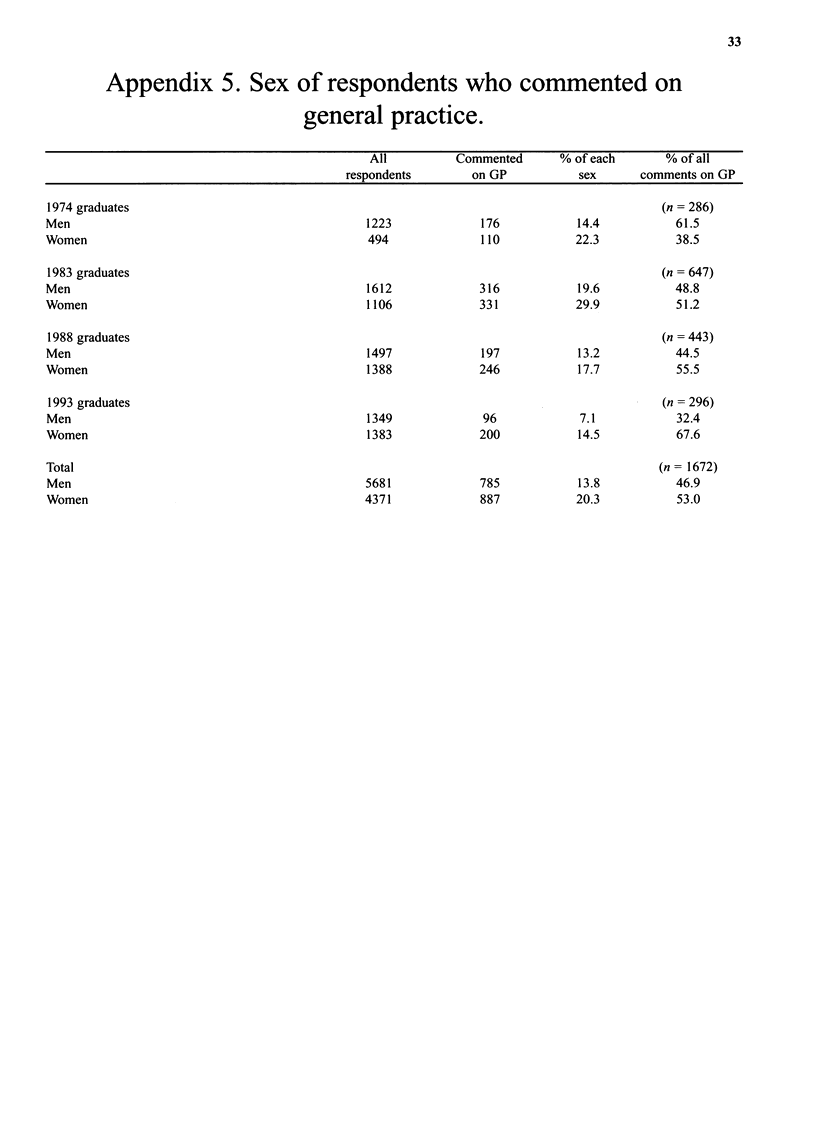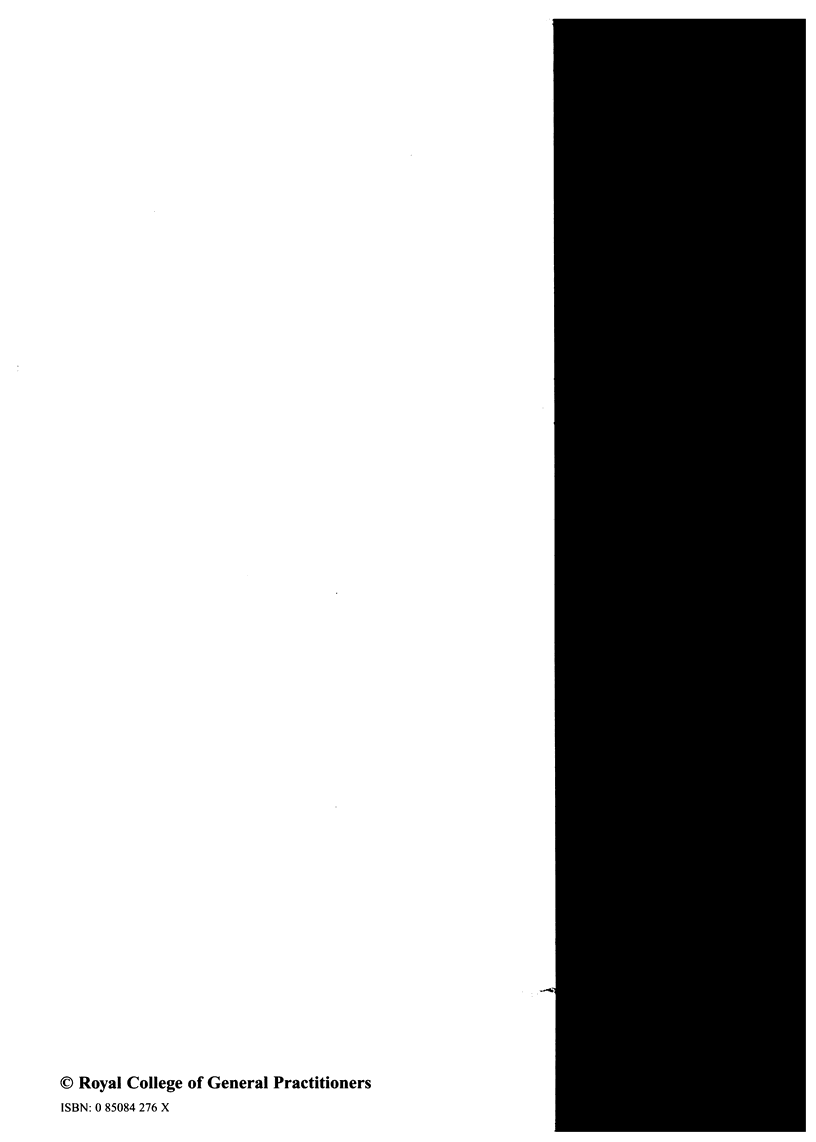Abstract
BACKGROUND AND AIMS: General practice in the UK is experiencing difficulty with medical staff recruitment and retention, with reduced numbers choosing careers in general practice or entering principalships, and increases in less-than-full-time working, career breaks, early retirement and locum employment. Information is scarce about the reasons for these changes and factors that could increase recruitment and retention. The UK Medical Careers Research Group (UKMCRG) regularly surveys cohorts of UK medical graduates to determine their career choices and progression. We also invite written comments from respondents about their careers and the factors that influence them. Most respondents report high levels of job satisfaction. A noteworthy minority, however, make critical comments about general practice. Although their views may not represent those of all general practitioners (GPs), they nonetheless indicate a range of concerns that deserve to be understood. This paper reports on respondents' comments about general practice
ANALYSIS OF DOCTORS' COMMENTS: Training Greater exposure to general practice at undergraduate level could help to promote general practice careers and better inform career decisions. Postgraduate general practice training in hospital-based posts was seen as poor quality, irrelevant and run as if it were of secondary importance to service commitments. In contrast, general practice-based postgraduate training was widely praised for good formal teaching that met educational needs. The quality of vocational training was dependent upon the skills and enthusiasm of individual trainers. Recruitment problems Perceived deterrents to choosing general practice were its portrayal, by some hospital-based teachers, as a second class career compared to hospital medicine, and a perception of low morale amongst current GPs. The choice of a career in general practice was commonly made for lifestyle reasons rather than professional aspirations. Some GPs had encountered difficulties in obtaining posts in general practice suited to their needs, while others perceived discrimination. Newly qualified GPs often sought work as non-principals because they felt too inexperienced for partnership or because their domestic situation prevented them from settling in a particular area. Changes to general practice The 1990 National Health Service (NHS) reforms were largely viewed unfavourably, partly because they had led to a substantial increase in GPs' workloads that was compounded by growing public expectations, and partly because the two-tier system of fund-holding was considered unfair. Fund-holding and, more recently, GP commissioning threatened the GP's role as patient advocate by shifting the responsibility for rationing of health care from government to GPs. Some concerns were also expressed about the introduction of primary care groups (PCGs) and trusts (PCTs). Together, increased workload and the continual process of change had, for some, resulted in work-related stress, low morale, reduced job satisfaction and quality of life. These problems had been partially alleviated by the formation of GP co-operatives. Retention difficulties Loss of GPs' time from the NHS workforce occurs in four ways: reduced working hours, temporary career breaks, leaving the NHS to work elsewhere and early retirement. Child rearing and a desire to pursue interests outside medicine were cited as reasons for seeking shorter working hours or career breaks. A desire to reduce pressure of work was a common reason for seeking shorter working hours, taking career breaks, early retirement or leaving NHS general practice. Other reasons for leaving NHS general practice, temporarily or permanently, were difficulty in finding a GP post suited to individual needs and a desire to work abroad.
CONCLUSIONS: A cultural change amongst medical educationalists is needed to promote general practice as a career choice that is equally attractive as hospital practice. The introduction of Pre-Registration House Officer (PRHO) placements in general practice and improved flexibility of GP vocational training schemes, together with plans to improve the quality of Senior House Officer (SHO) training in the future, are welcome developments and should address some of the concerns about poor quality GP training raised by our respondents. The reluctance of newly qualified GPs to enter principalships, and the increasing demand from experienced GPs for less-than-full-time work, indicates a need for a greater variety of contractual arrangements to reflect doctors' desires for more flexible patterns of working in general practice.
Images in this article
